The Wellesley Centers for Women offers a number of opportunities for Wellesley College students to work with our research scientists, project directors, and administrative staff. These students serve as research assistants, as administrative assistants, or as interns through the Class of 1967 Internship Program and other Wellesley College internship programs. Students who work with our research scientists have opportunities to help with data collection and analysis, contribute to academic journal articles, attend conferences, and present alongside their mentors. Students in administrative roles get a behind-the-scenes look at social justice work while supporting our action projects, external relations initiatives, and other WCW teams.
Working at WCW is a unique opportunity for undergraduates to get firsthand experience with research and action that drives social change. Learn more about the work students have done at WCW:
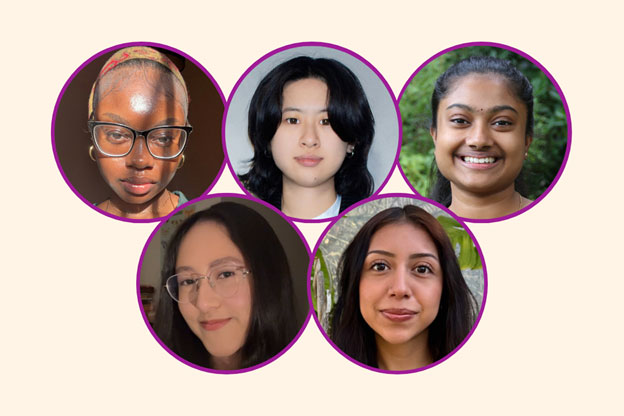 May 14, 2025
May 14, 2025
At the start of the academic year, five Wellesley College students began internships through the Class of 1967 Internship Program at the Wellesley Centers for Women.
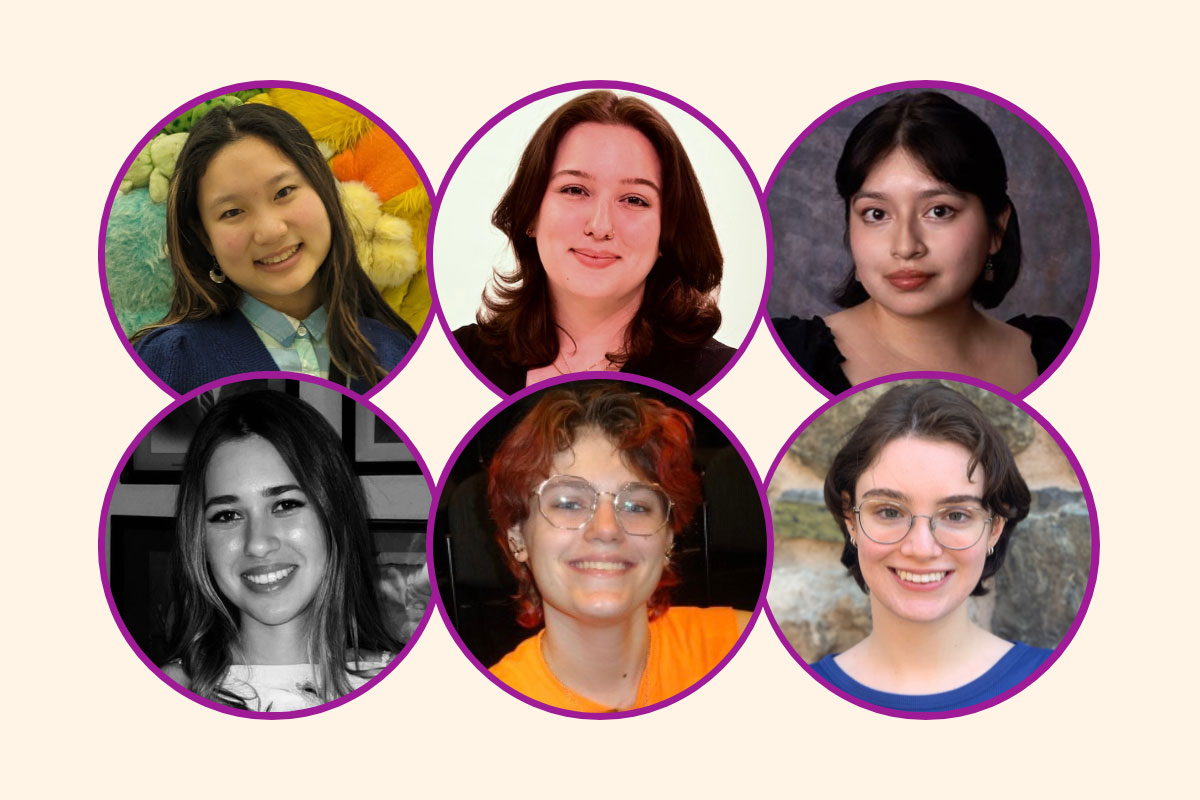 May 30, 2024
May 30, 2024
At the start of the academic year, six Wellesley College students began internships at WCW through the Class of 1967 Internship Program.
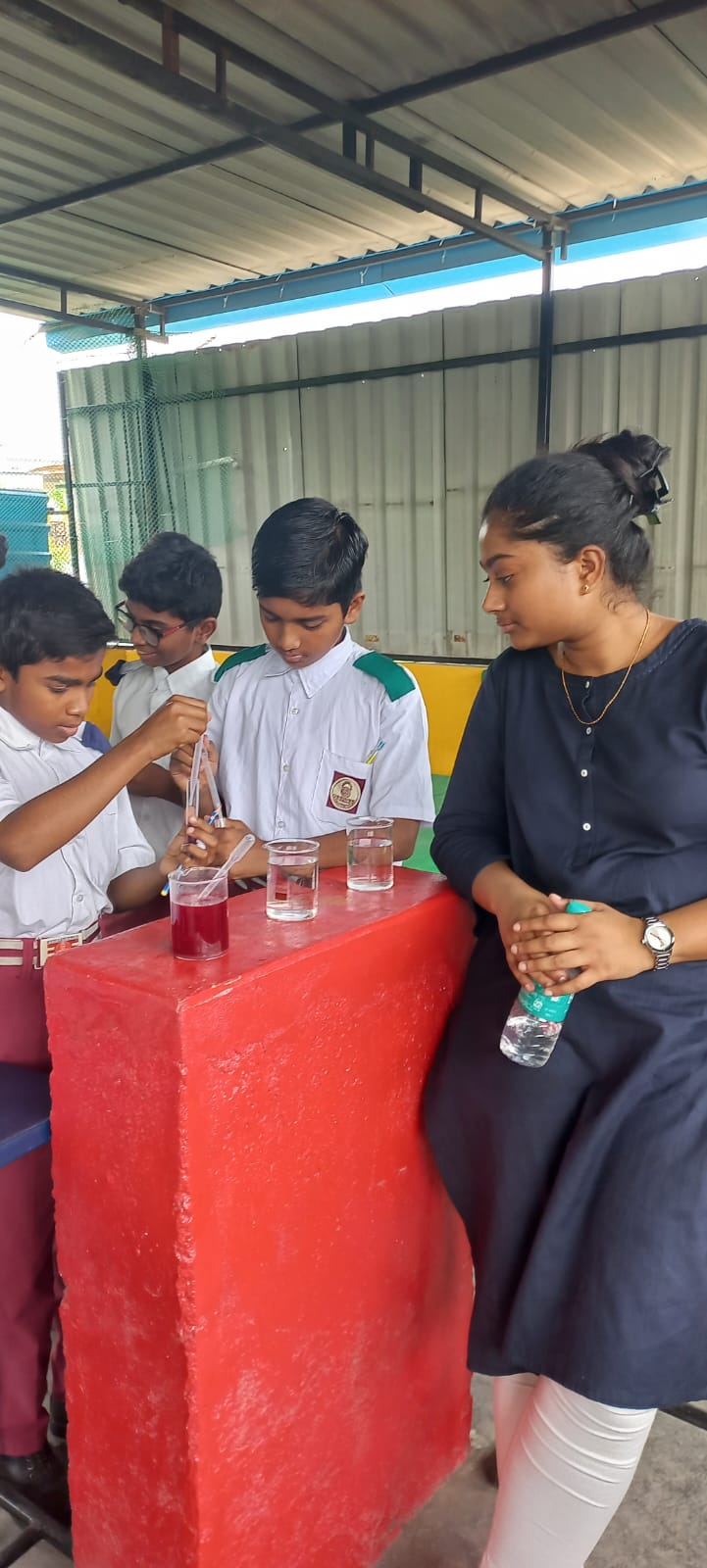 December 14, 2023
December 14, 2023
My first summer in college, I wasn’t just lucky enough to go home, but I was lucky enough to go home and give back to my community. Through the Wellesley Career Education Grants Program, I received the Susan Rappaport Knafel ’52 Internship Fund. I used the fund to take the Science, Technology, Engineering and Math Kit (STEMKit) to India.Developed in 2015, under the guidance...
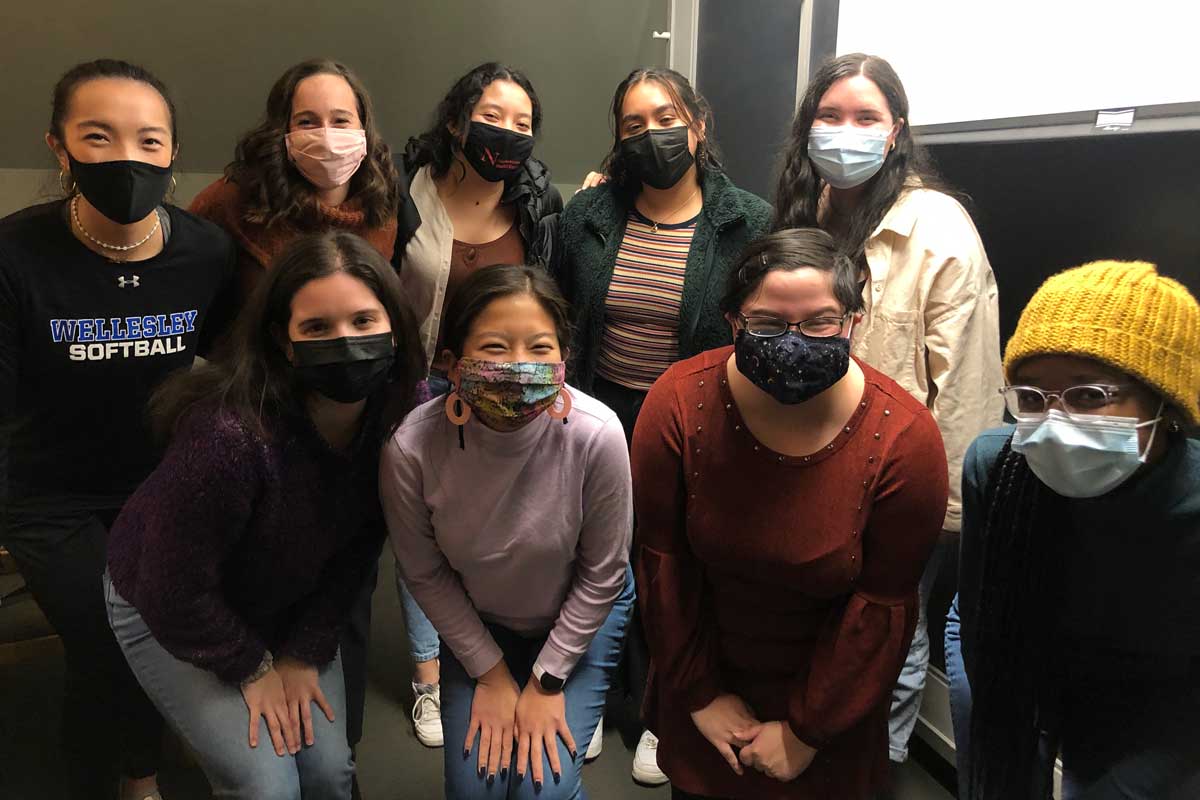 January 19, 2023
January 19, 2023
The interdisciplinary course is focused on social technologies and adolescent development.
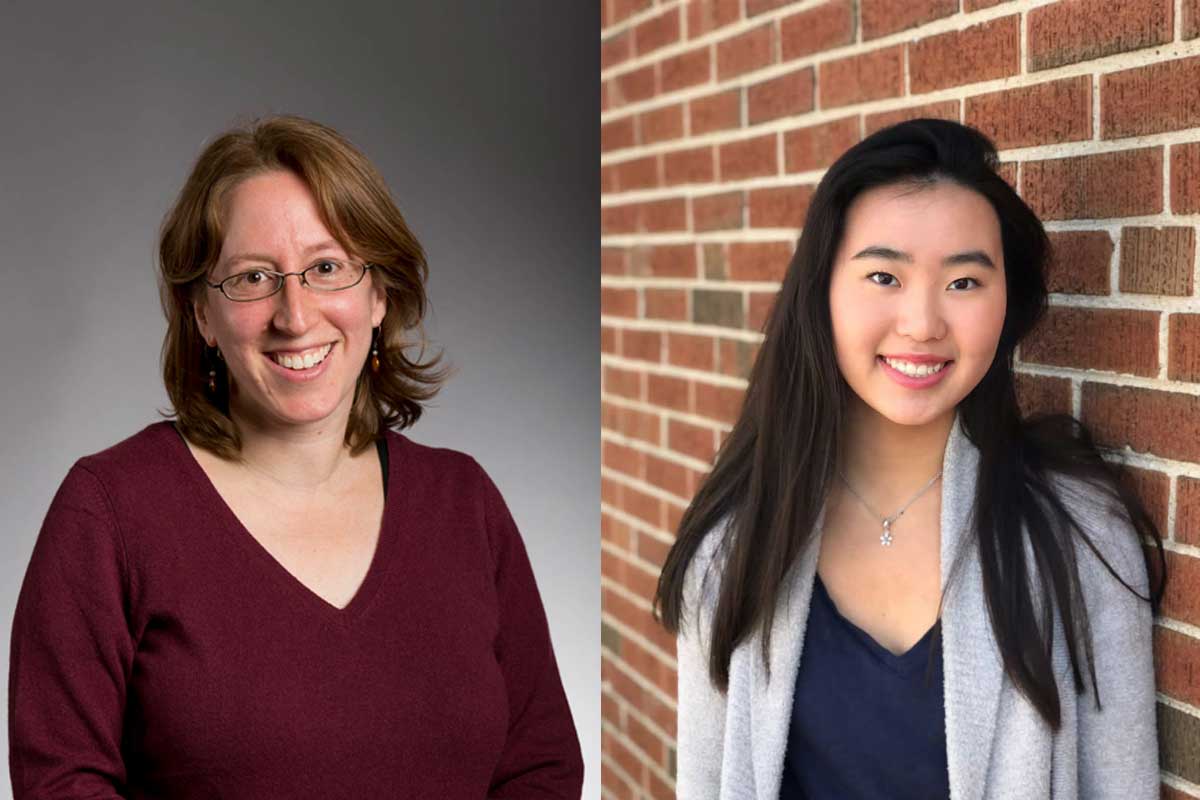 December 14, 2022
December 14, 2022
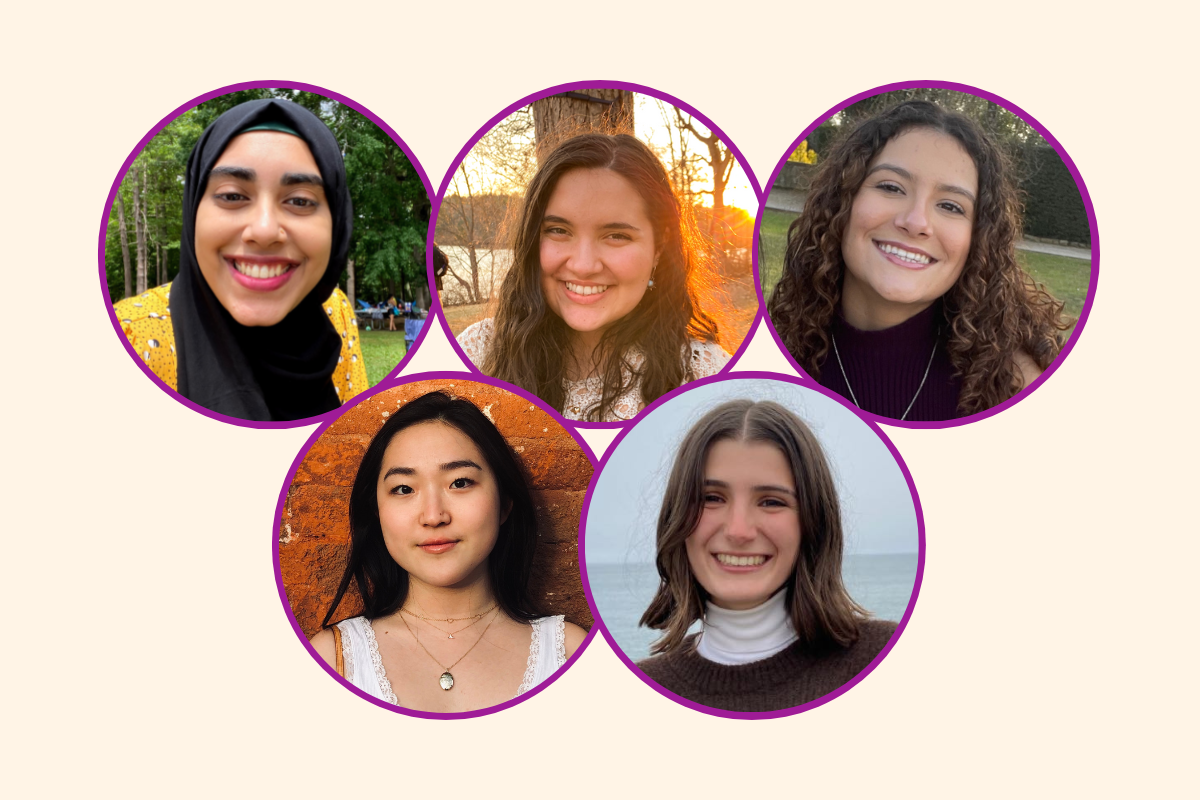 October 24, 2022
October 24, 2022
At the start of the academic year, five Wellesley College students began internships at WCW through the Class of 1967 Internship Program.
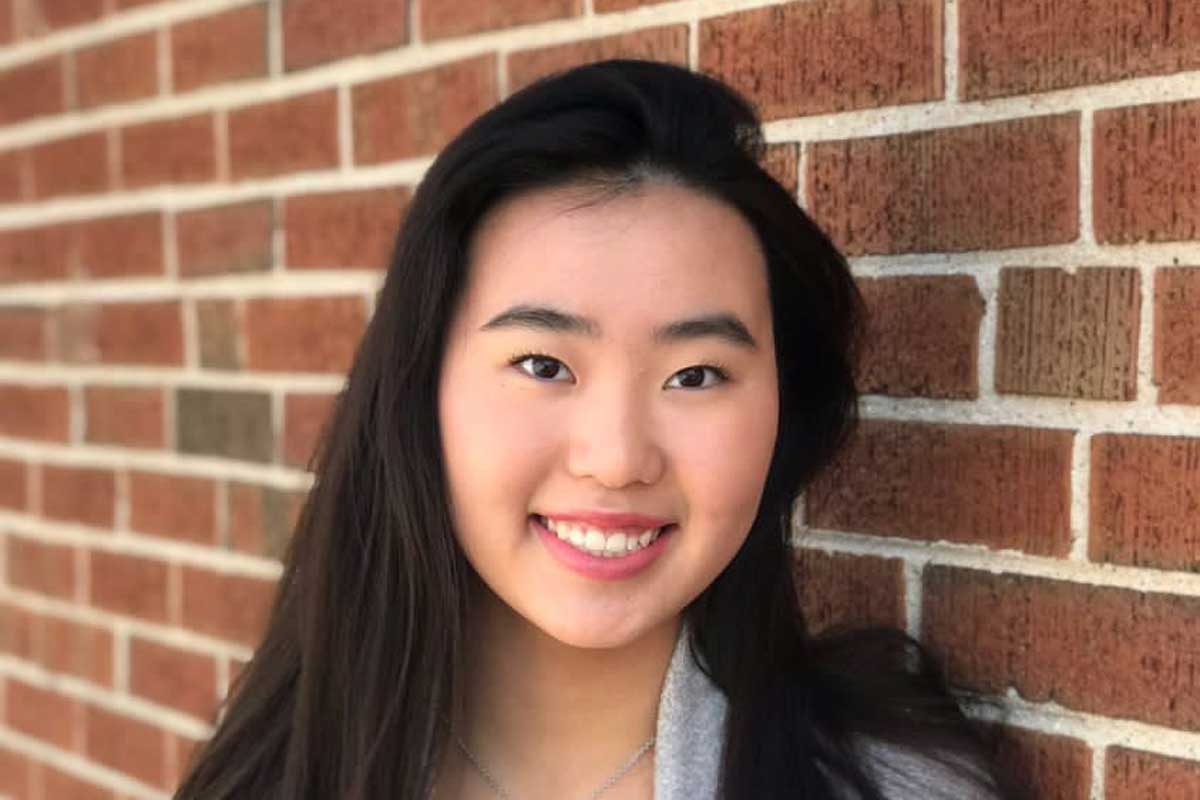 September 8, 2022
September 8, 2022
At the beginning of my summer research internship, I’ll admit that I didn’t fully understand the impact of fathers talking to their teens about dating and sex. Why would fathers have a significant impact on teens’ sexual health if someone else, like their mother, already has the situation under control? However, after taking a deeper dive into Senior Research ...
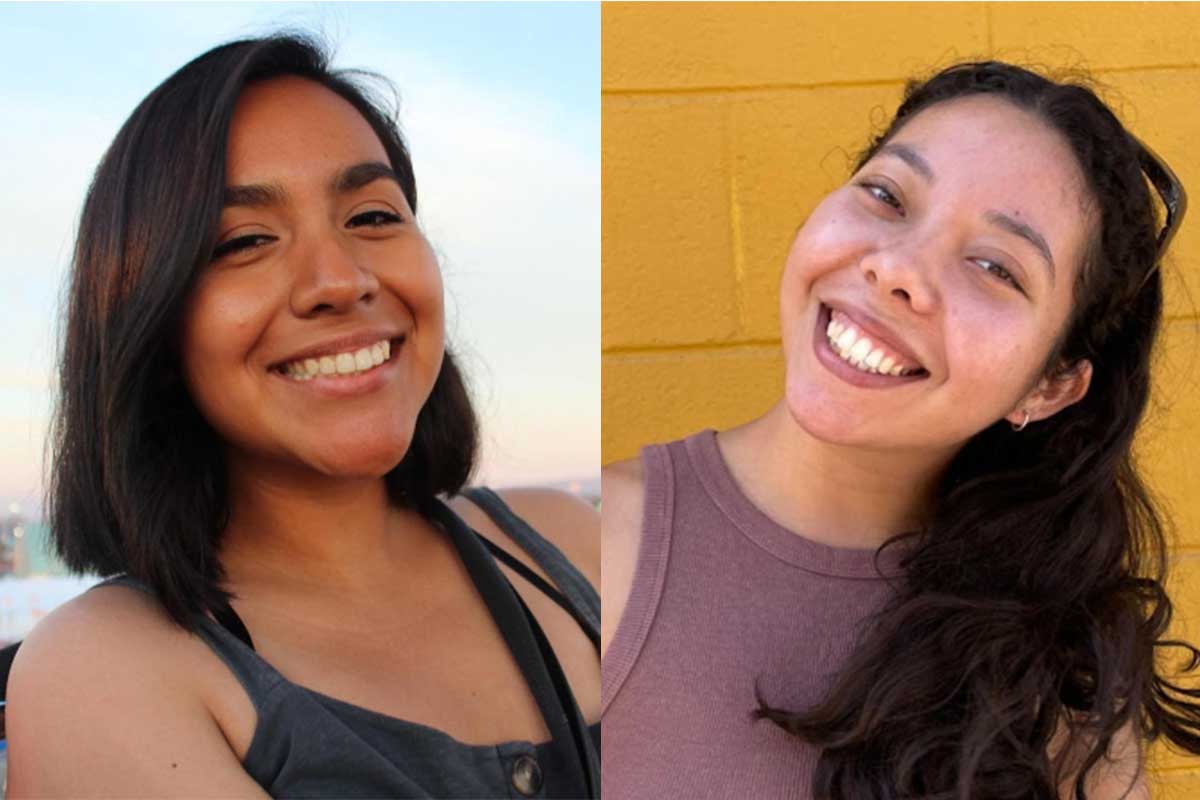 August 11, 2022
August 11, 2022
This post was written by Jennifer Miranda and Bri Vigil, recent graduates of Wellesley College who took a Calderwood Seminar on public writing taught by WCW Senior Research Scientist Linda Charmaraman, Ph...
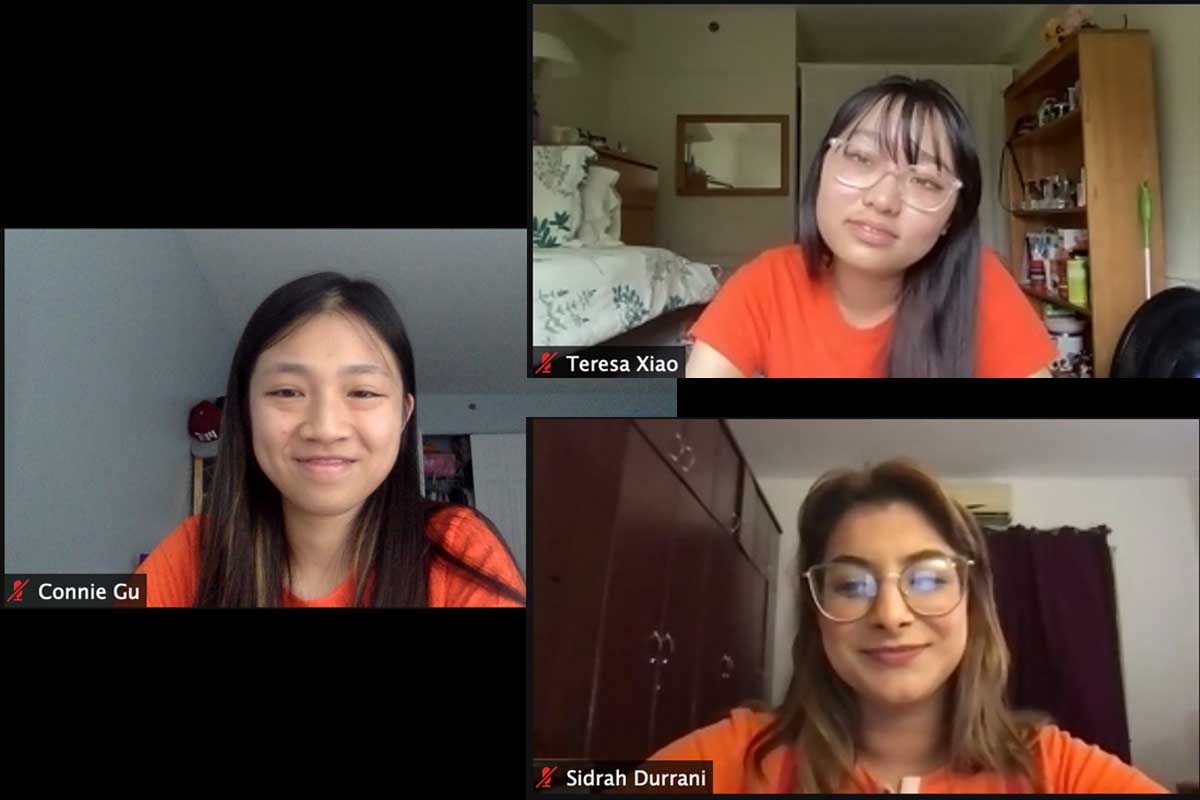 July 18, 2022
July 18, 2022
Digital communication systems, such as social media platforms, are created for the masses but aren’t often designed for a large scope of their user base: adolescent girls from marginalized communities. The Youth, Media & Wellbeing (YMW) Research Lab, ...
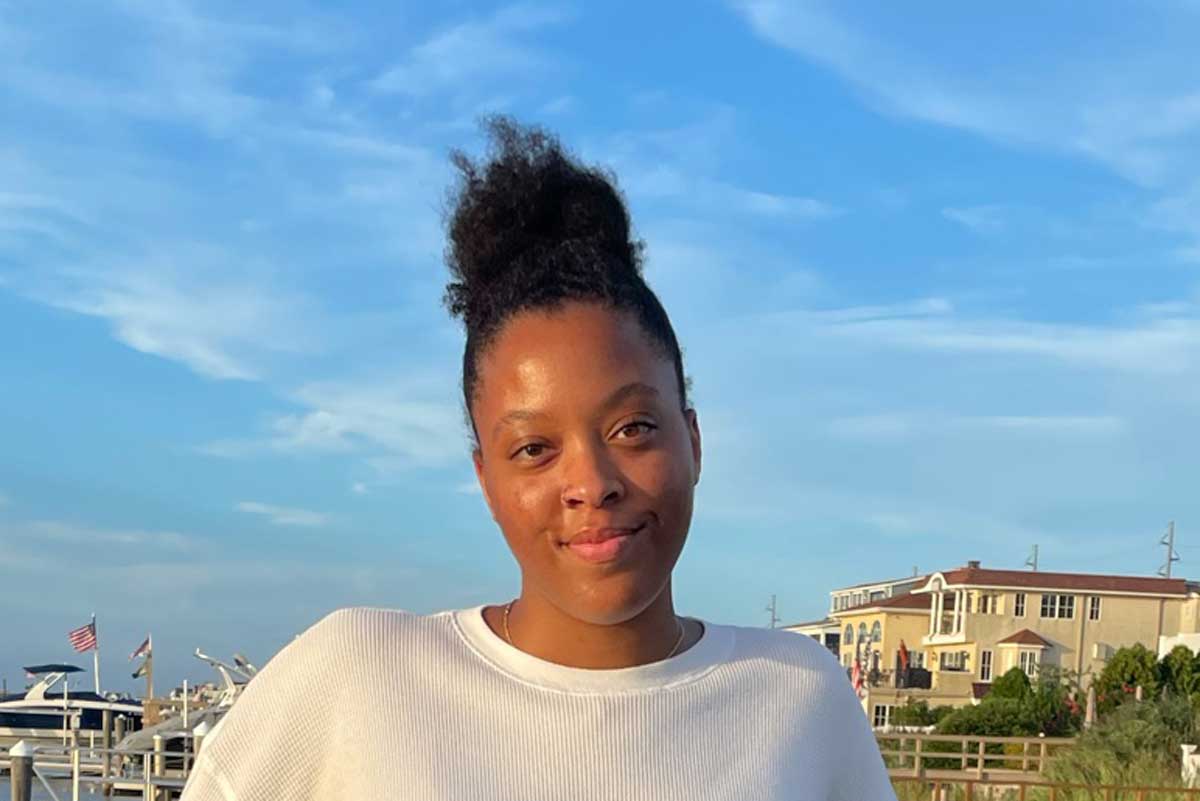 March 15, 2022
March 15, 2022
Starting in the fall of 2021, I began working as a research intern for Senior Research Scientist Linda M. Williams, Ph.D., on her Justice and Gender-Based Violence Research Initiative at the Wellesley Centers for Women. Heading into the year, I was unsure of what to ...
 March 3, 2022
March 3, 2022
This piece was written by Carolyn Bacaj and Mikhaela Andersonn, students at Wellesley College who recently took a Calderwood Seminar on public writing taught by WCW Senior Research Scientist Linda Charmaraman, Ph.D. As...
 November 24, 2021
November 24, 2021
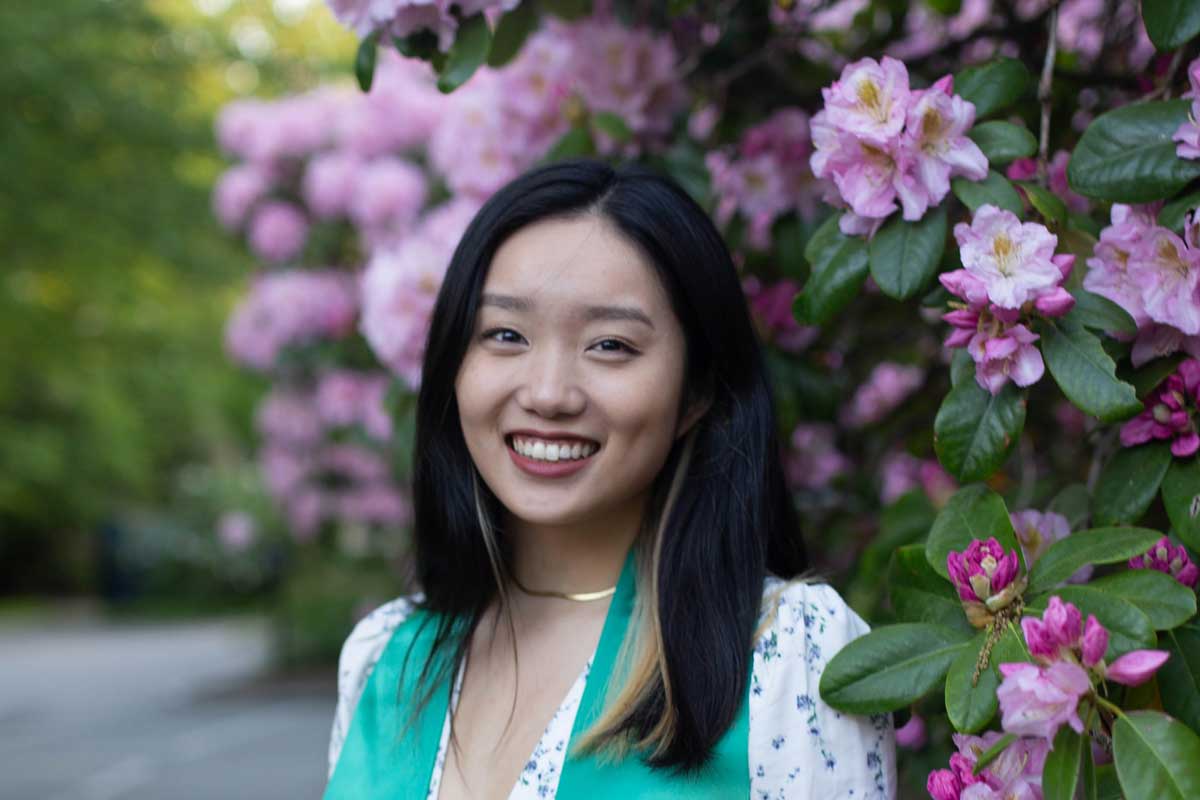 November 15, 2021
November 15, 2021
Last fall, as the COVID-19 pandemic continued to wreak havoc in the U.S. and across the world, the class of 2021 carried on attending Wellesley but in a fragmented way for our senior year. We attended our remote classes on Zoom and connected with friends through FaceTime or other forms of social media. And without really any choice, our entire lives had become entirely dependent on ...
 October 28, 2021
October 28, 2021
Conversations centered around dating, relationships, and sex take place in classrooms, on social media, in households, and even in mainstream news outlets. Policymakers, educators, and parents alike realize the benefits of teaching adolescents about these topics instead of leaving teens to learn on their own via the internet, friends, and other less-than-ideal sources. However, one ...
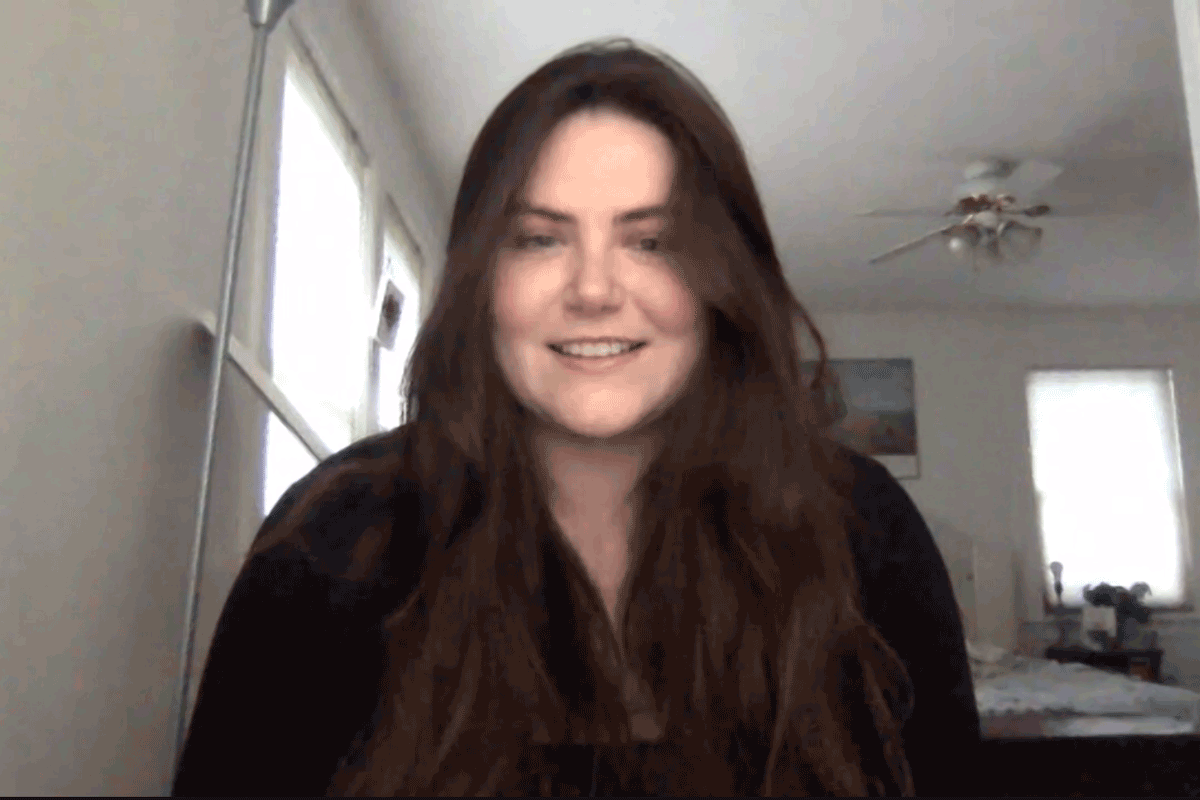 October 13, 2021
October 13, 2021
Jacqueline Brinkhaus ’22 discusses her experience as an intern with our Family, Sexuality, and Communication Research Initiative.
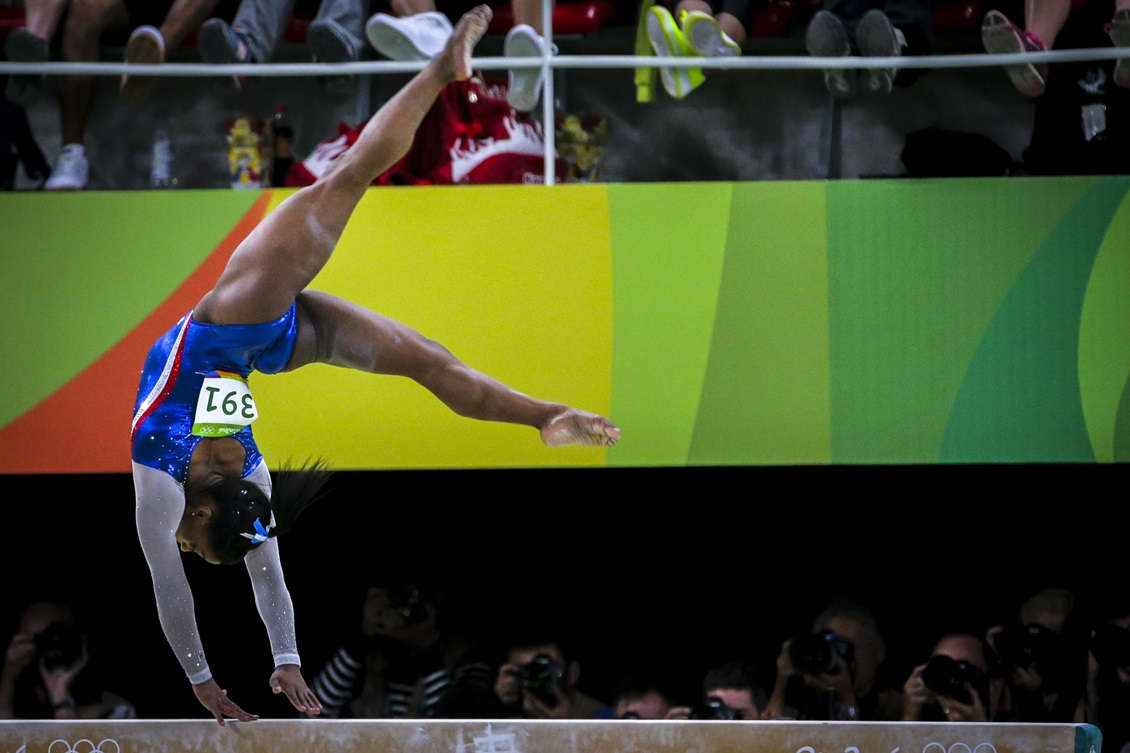 October 8, 2021
October 8, 2021
On October 11, International Day of the Girl Child, Intern Simone Toney and Senior Research Scientist Linda M. Williams, Ph.D., discuss how USA Gymnastics exemplifies what happens when an institution places a girl’s achievements above all else, and how Simone Biles is driving change for the better.
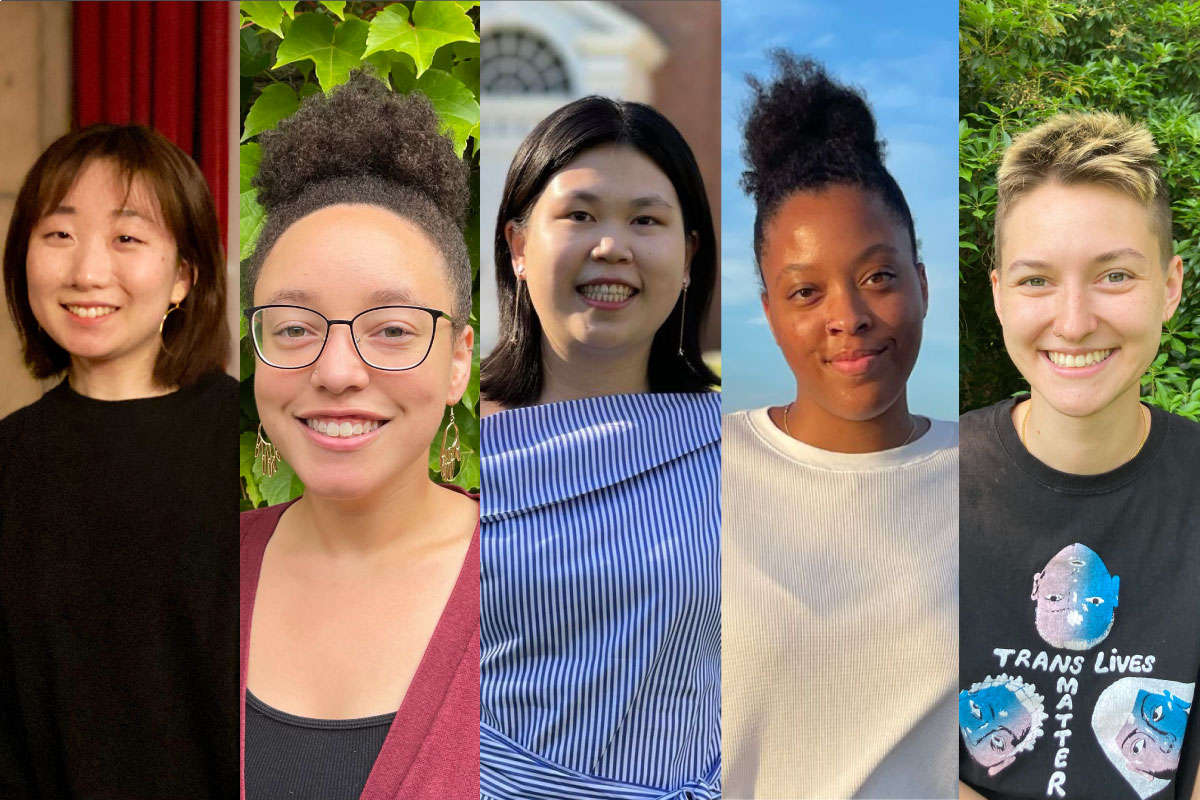 September 22, 2021
September 22, 2021
At the start of the academic year, five Wellesley College students began internships at WCW through the Class of 1967 Internship Program.
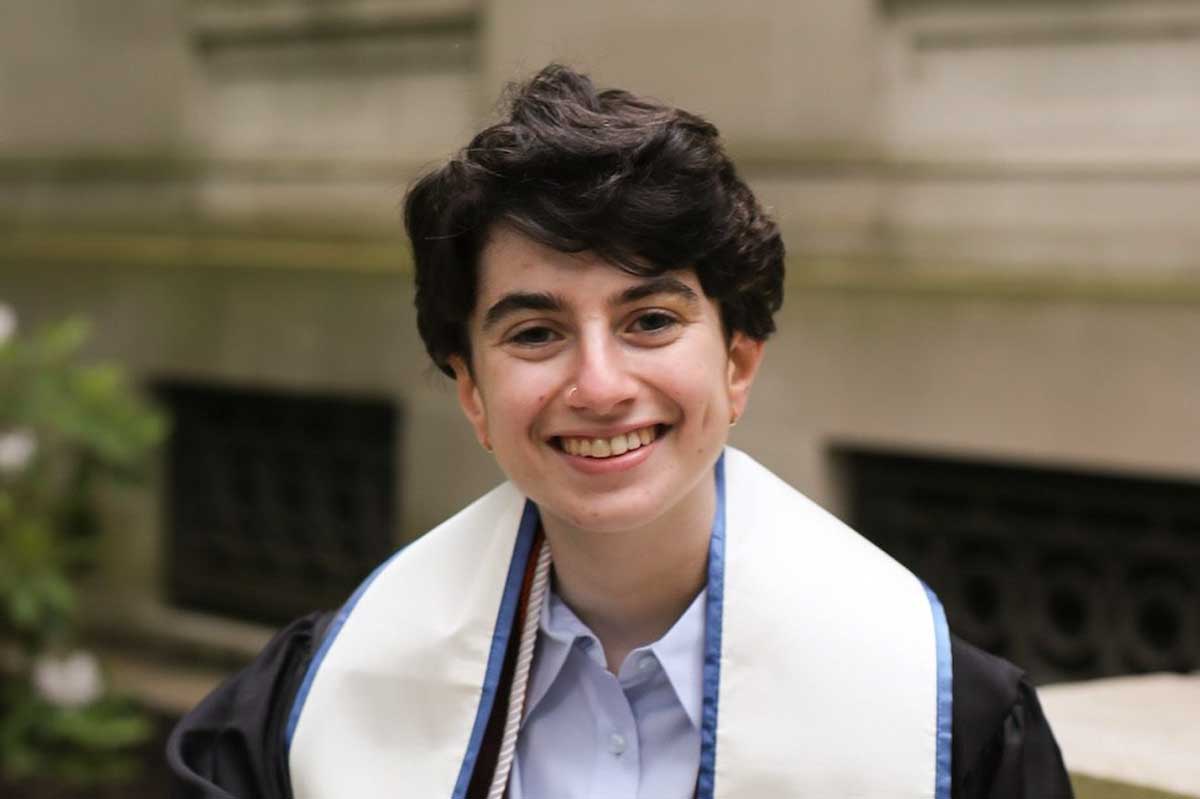 September 20, 2021
September 20, 2021
As a Class of 1967 intern at the Wellesley Centers for Women, I had the opportunity to spend the past year working with Dr. Linda Charmaraman in ...
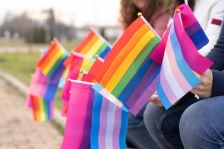 September 1, 2021
September 1, 2021
This article examines how sexual minority middle schoolers use social media, who they are connected to and for what purposes, and the associations between these behaviors and mental wellbeing, compared to their heterosexual peers. Dr. Charmaraman, Hodes, and Richer surveyed 1,033 early adolescents aged 10-16 from four middle schools in the Northeast U.S., comparing the responses of ...
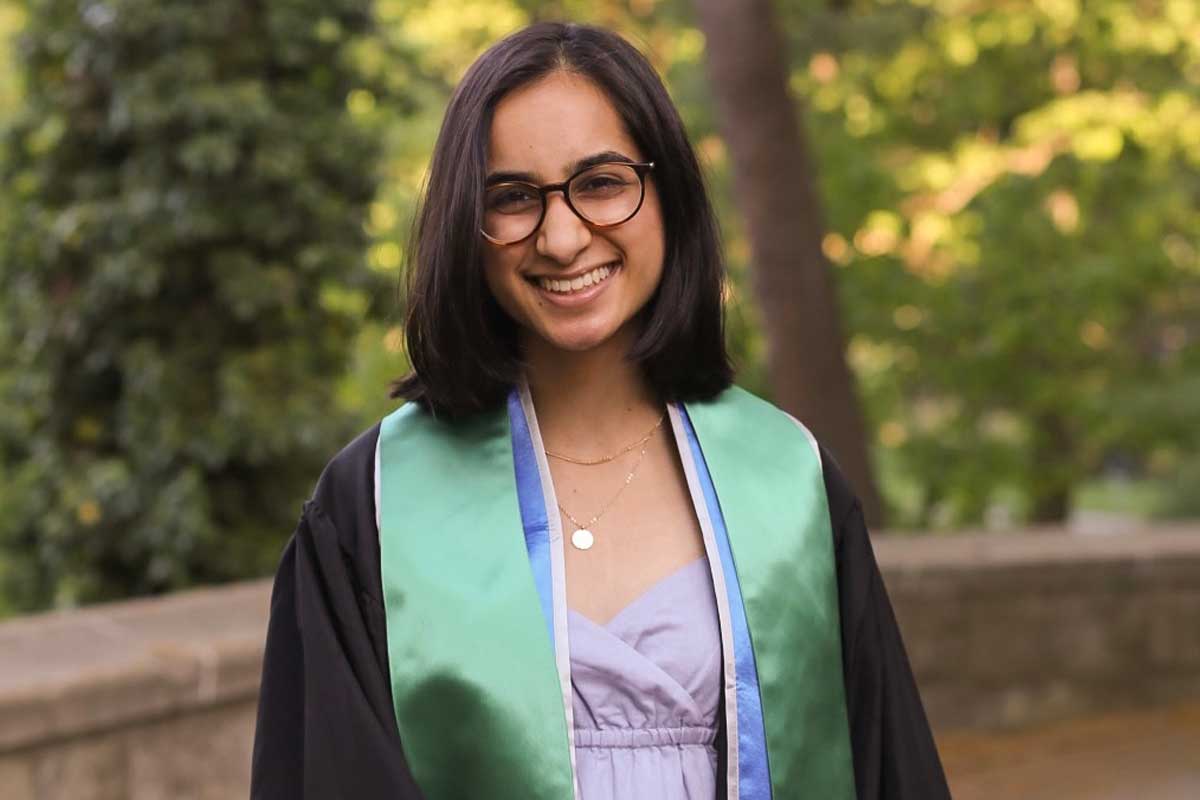 July 26, 2021
July 26, 2021
Imagine that it is March 2020 and you are hearing increased reports about COVID-19’s U.S. path. Meanwhile, it’s a Monday—a workday—and you feel ill with symptoms that align with ones reportedly associated with the new virus. You know that if you attend work, you may infect your fellow coworkers with whatever illness you are experiencing, COVID-19 or not. Your ideal ...
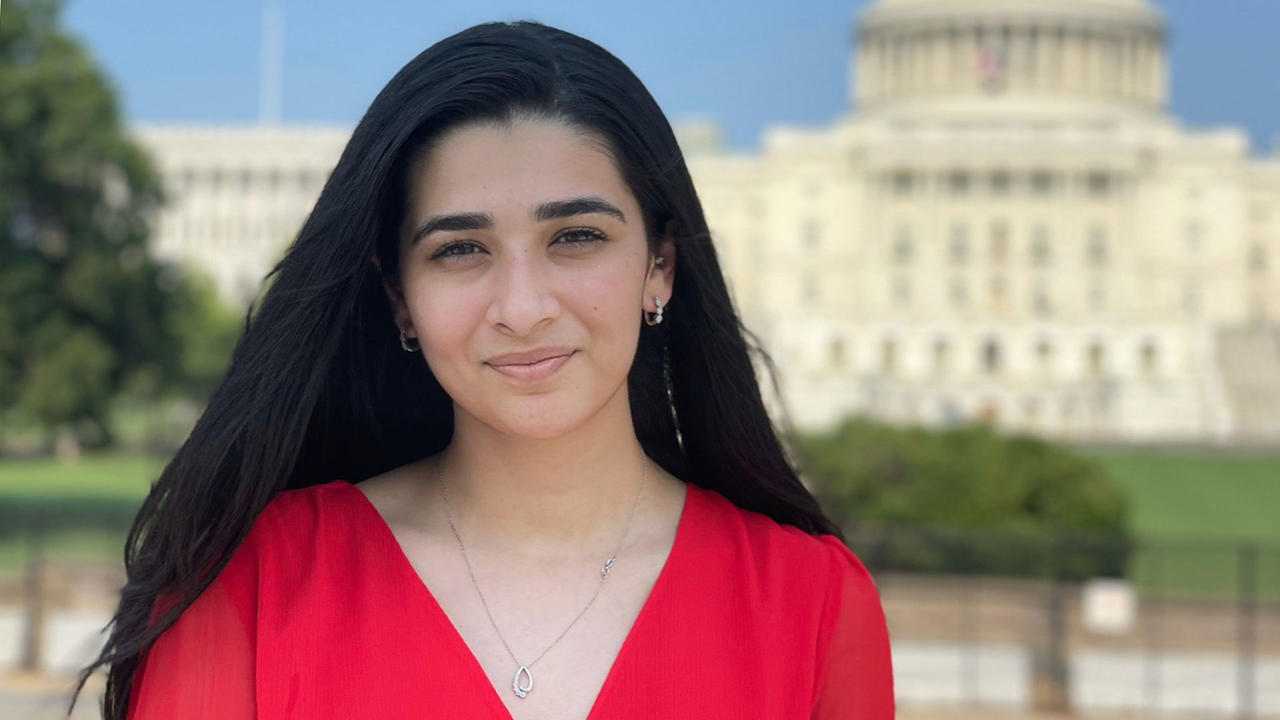 July 26, 2021
July 26, 2021
 June 9, 2021
June 9, 2021
Several new studies from Linda Charmaraman, Ph.D., and Jennifer M. Grossman, Ph.D., help us understand more about the experiences of LGBTQ+ teens.
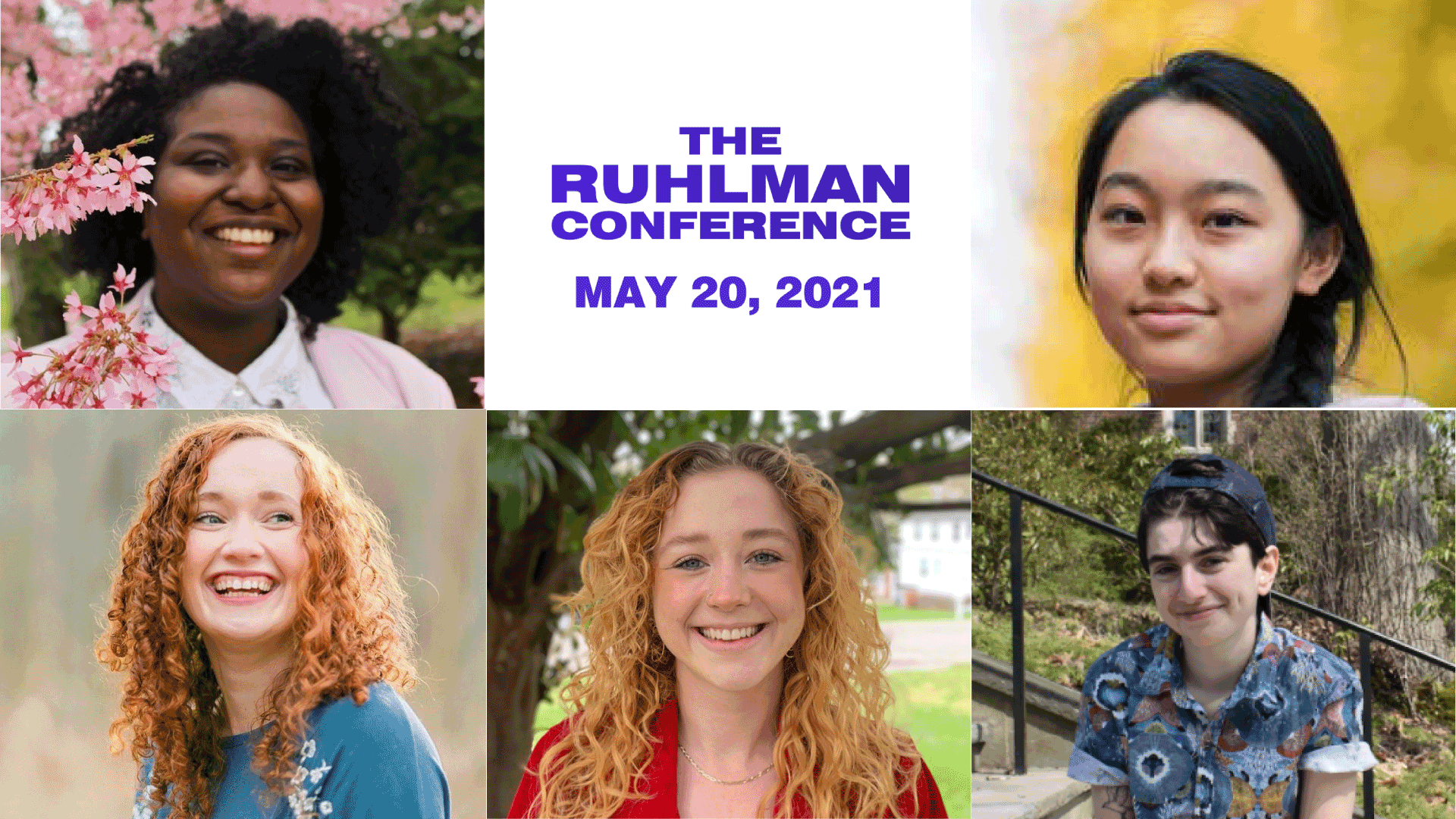 May 21, 2021
May 21, 2021
Students from the Youth, Media & Wellbeing Research Lab share findings from ongoing studies during a Wellesley College Ruhlman Conference presentation.
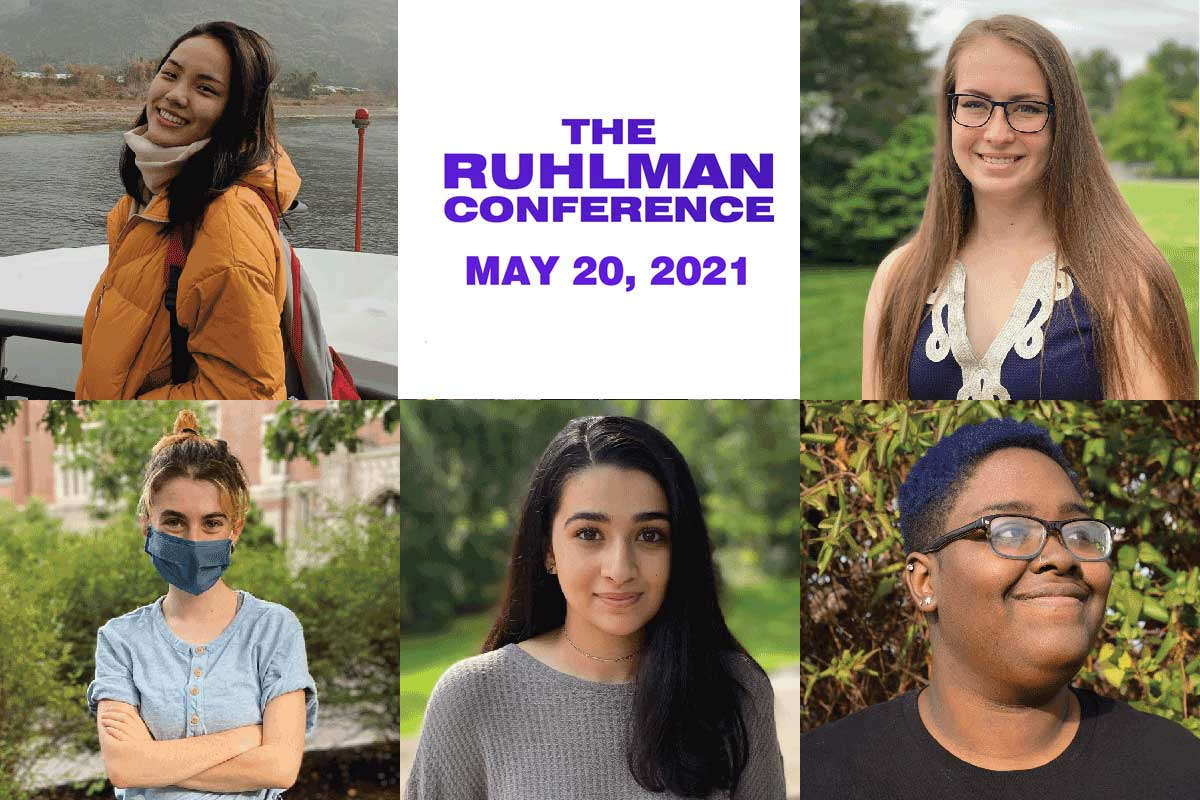 May 20, 2021
May 20, 2021
Students in the 2020-21 Class of 1967 Internship Program at WCW discuss what they learned during their internships.
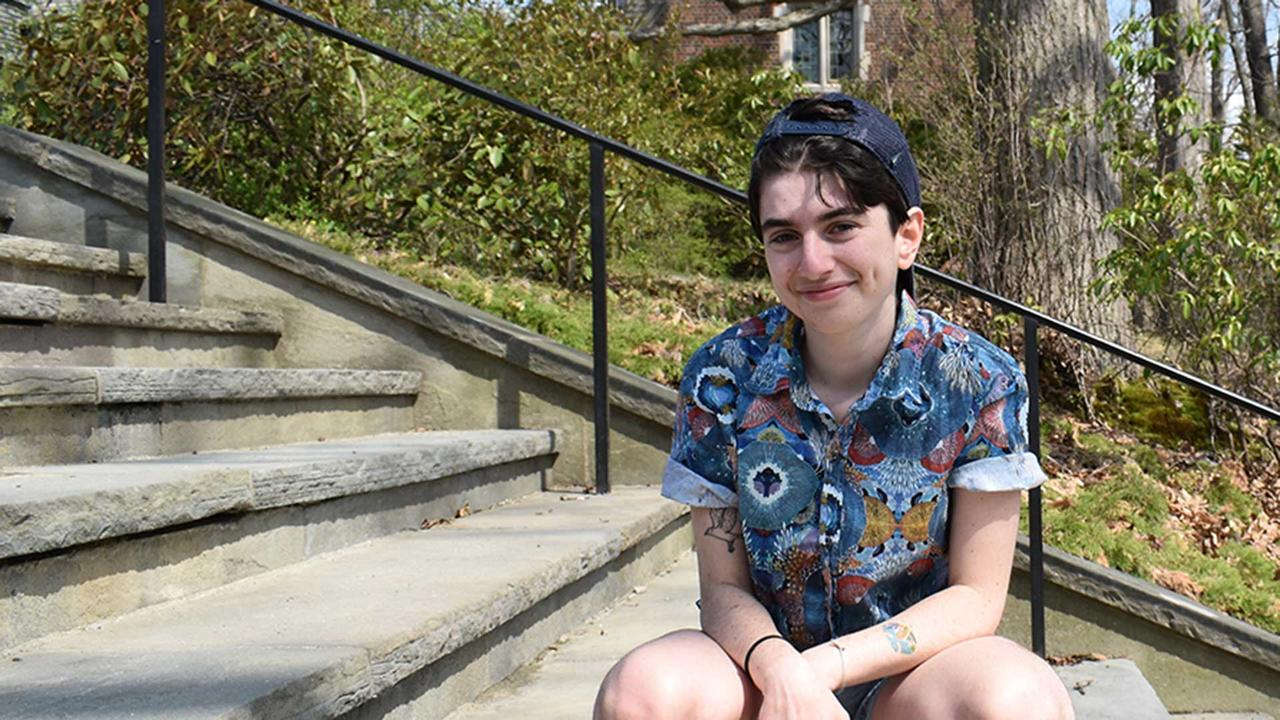 May 17, 2021
May 17, 2021
Wellesley College student Rachel Hodes worked with Linda Charmaraman, Ph.D., during the 2020-21 academic year.
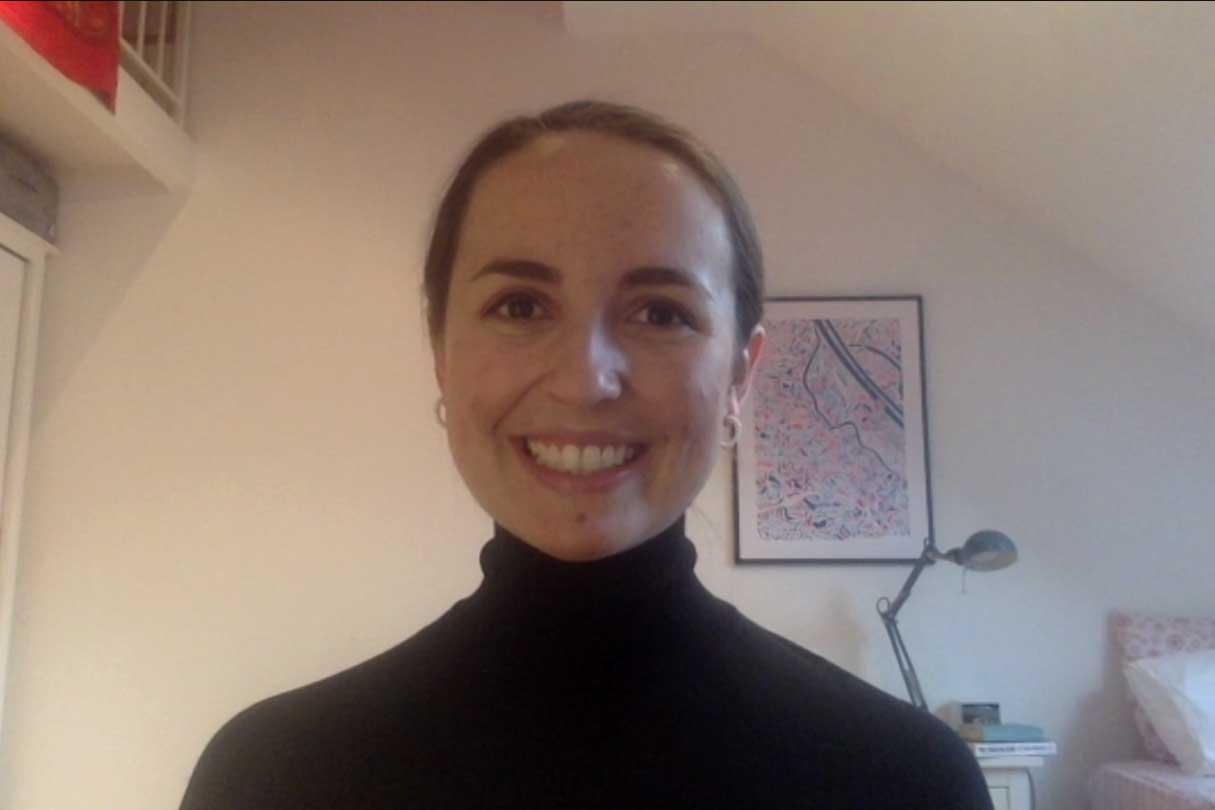 February 9, 2021
February 9, 2021
Nora Pearce, a Wellesley College student in the class of 2022, discusses research findings from a journal article she co-authored with Dr. Jennifer Grossman.
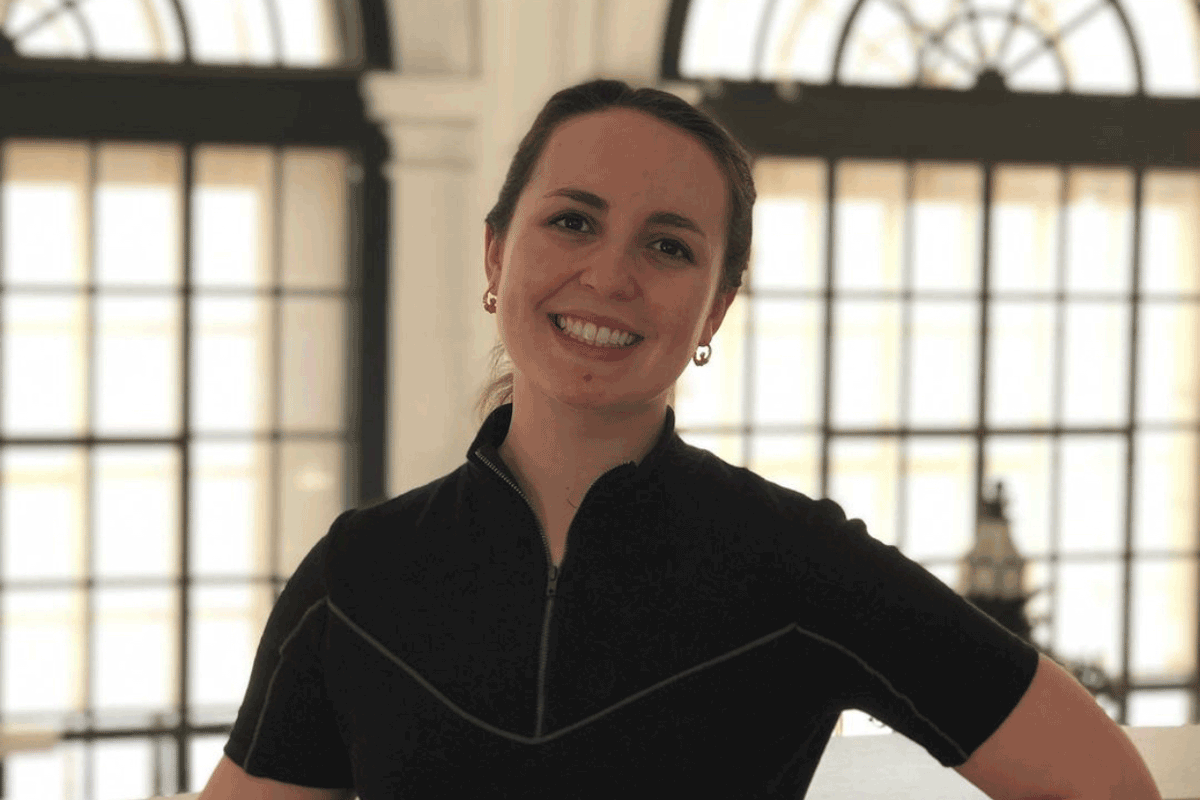 February 8, 2021
February 8, 2021
Sex education in the American public school system varies from state to state and from school district to school district. The lack of standardized sex education makes family education and conversations about sex and relationships all the more important for teenagers and their development. It is often assumed that parents are the default—that they are the only family members ...
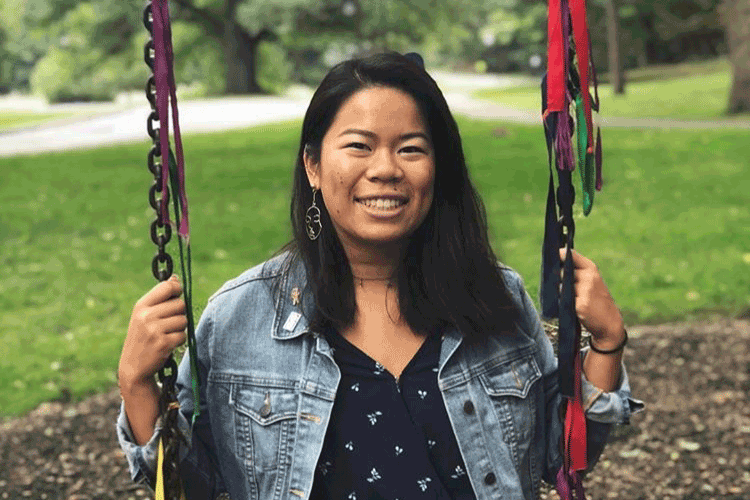 December 17, 2020
December 17, 2020
I spent the past semester working with Professor Sari Kerr as a research intern, and greatly enjoyed the experience. Our weekly Zoom meetings were welcomed as constant reminders of my connection to Wellesley, despite studying off campus. My work with her focused on the role of entrepreneurship and how it affects social mobility ...
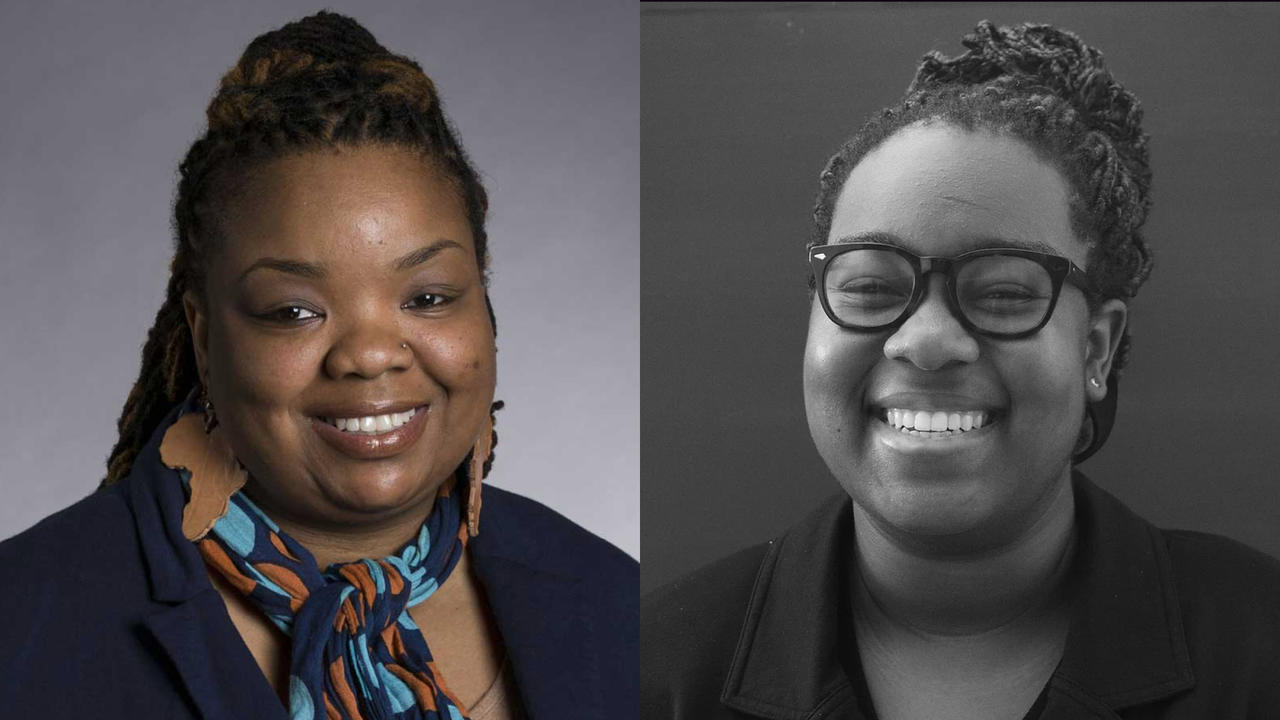 December 12, 2020
December 12, 2020
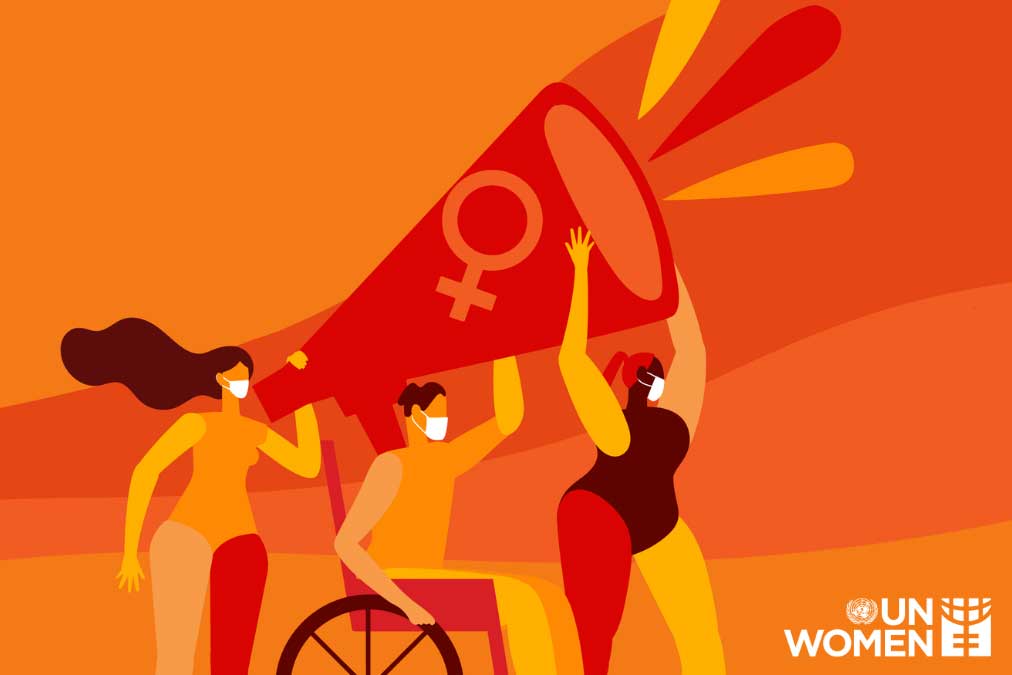 November 25, 2020
November 25, 2020
Today, the International Day to End Violence Against Women and Girls, we call for a renewed commitment to this work in the U.S. The UN Women’s executive director has called for governments to make visible at the highest level a “commitment to addressing violence against women and...
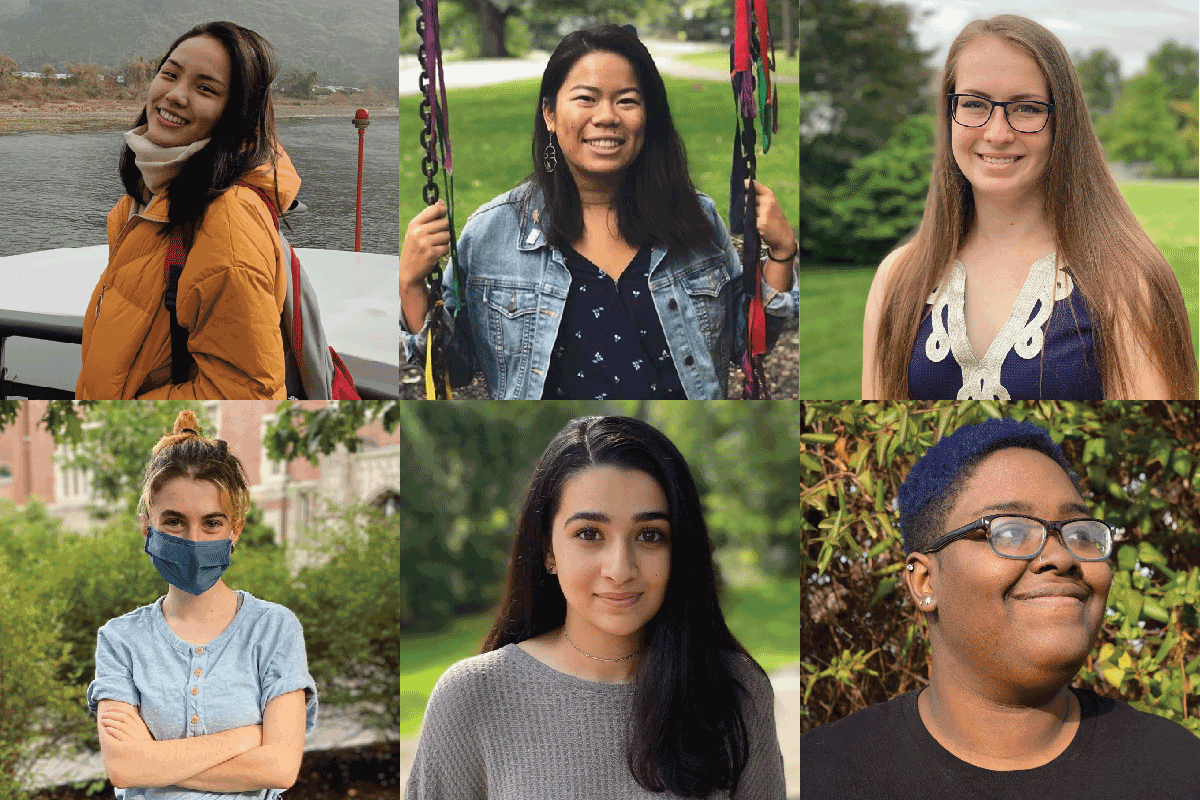 September 24, 2020
September 24, 2020
Six Wellesley College students recently began internships through the Class of 1967 Internship Program at the Wellesley Centers for Women.
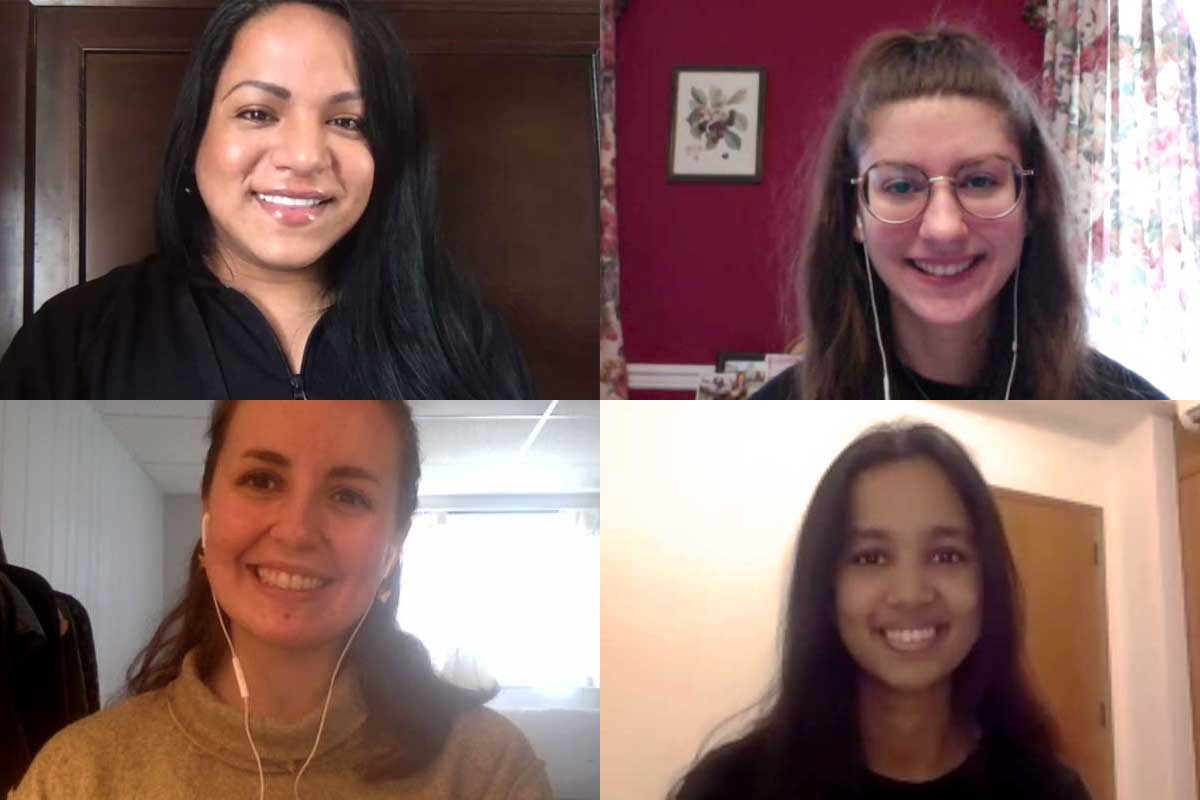 June 4, 2020
June 4, 2020
Ninotska Love, Jessica Abowitz, Nora Pearce, Dhanya NageswaranDespite the need to leave campus, WCW mentors and interns found ways to continue their collaborations.
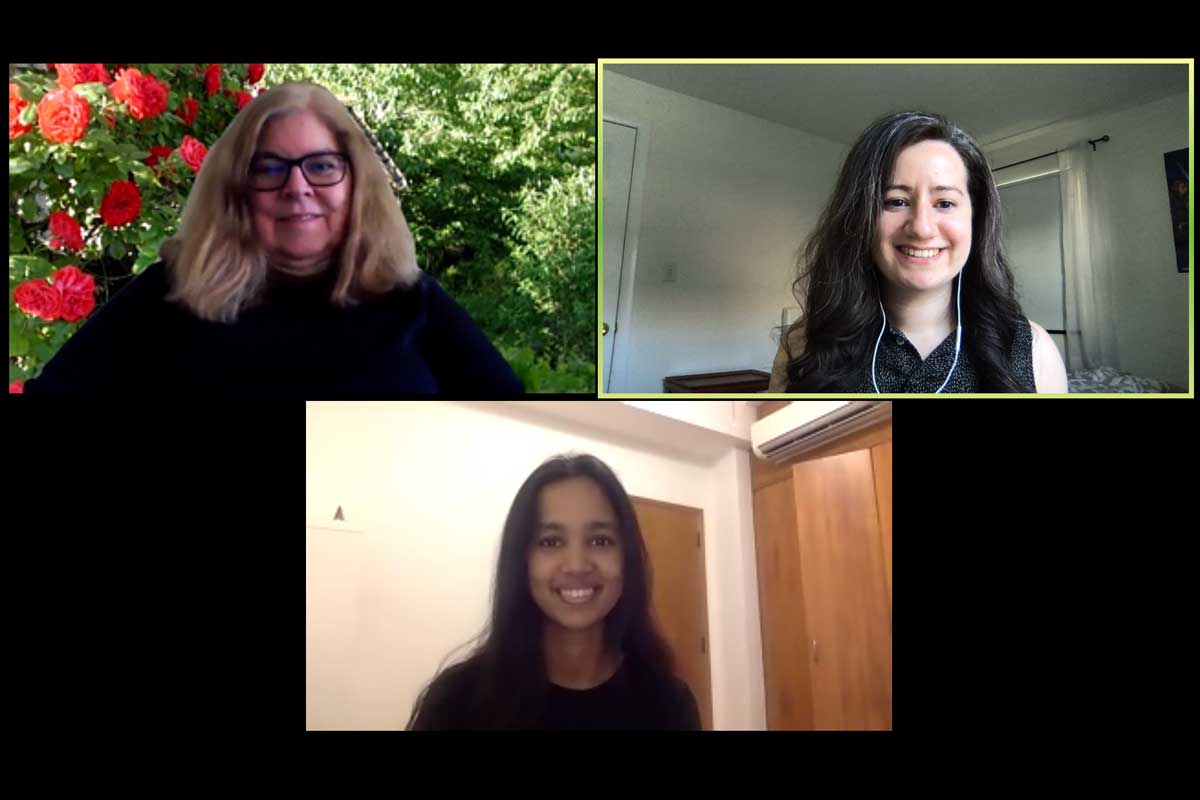 May 29, 2020
May 29, 2020
During the 2019-2020 academic year, Dhanya Nageswaran, a Wellesley College student in the class of 2021, worked with mentor Linda M. Williams, Ph.D., to study the ways colleges and universities respond to sexual assault on campus.
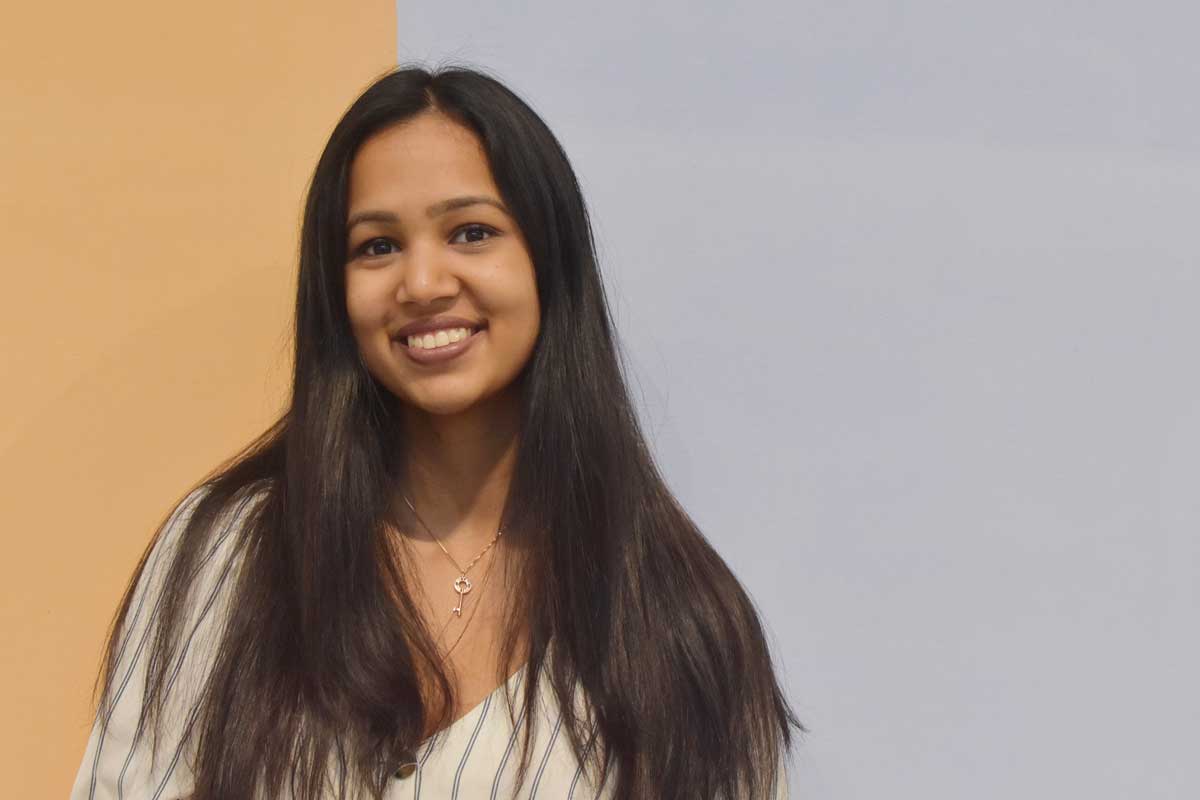 May 28, 2020
May 28, 2020
Sage Carson was raped by a graduate student in her sophomore year of college. In an article for VICE in 2018, she recounts the grave trauma she endured as a result. Unable to transfer schools and experiencing a steady decline in her GPA, Carson ...
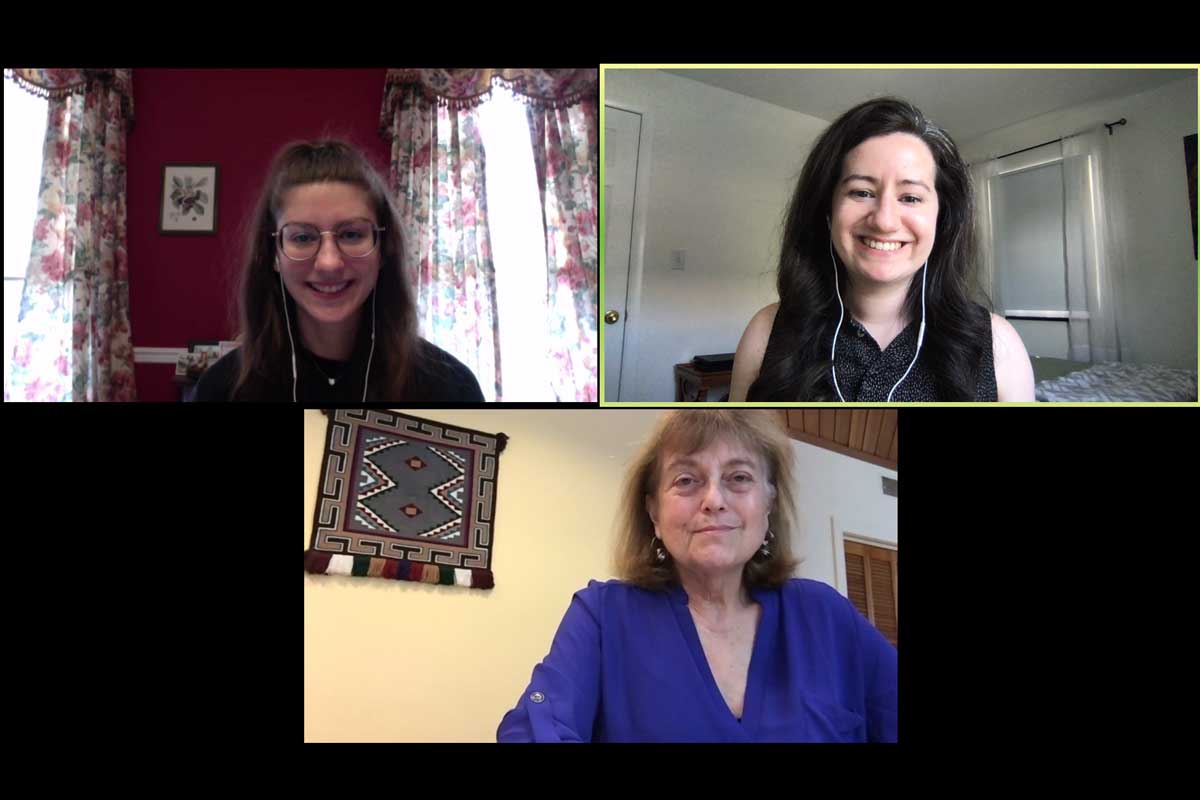 May 28, 2020
May 28, 2020
Jessica Abowitz, a Wellesley College student in the class of 2022, studied student activist movements against sexual harassment in K-12 schools with mentor Nan Stein, Ed.D., during the 2019-2020 academic year.
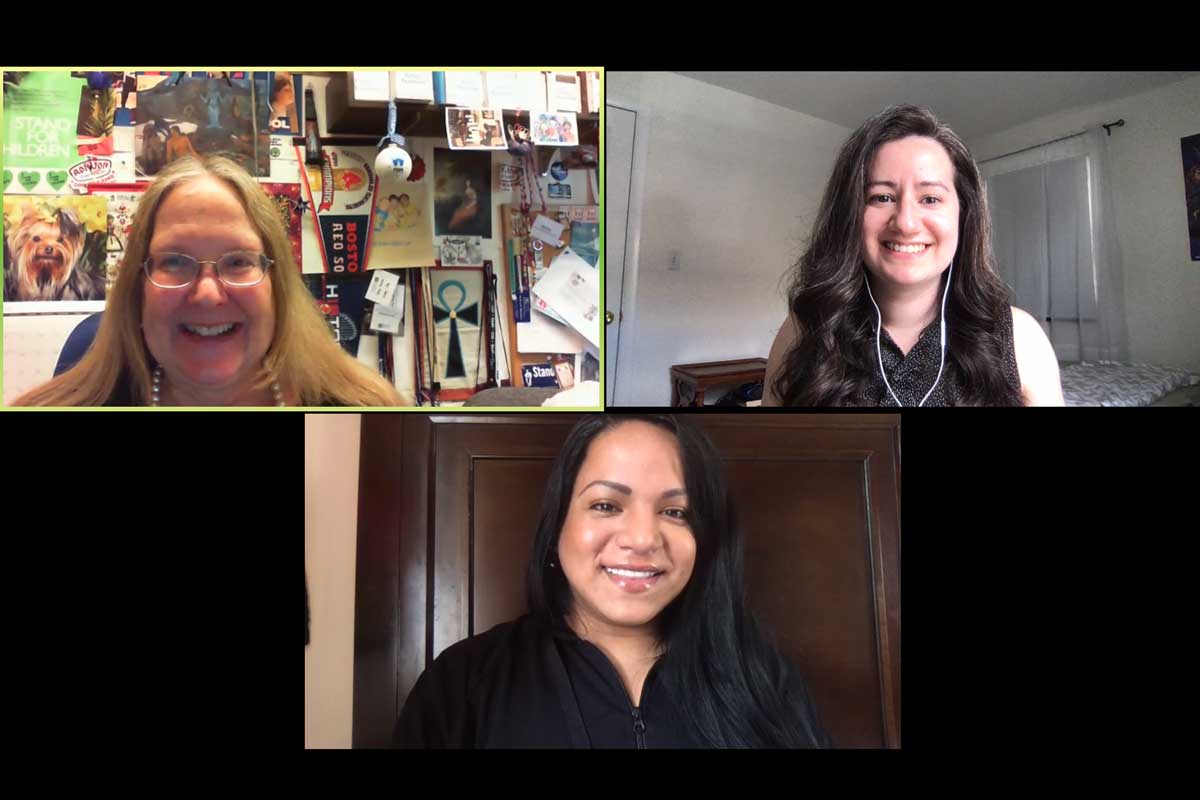 May 27, 2020
May 27, 2020
Ninotska Love, a Wellesley College student and Davis Scholar in the class of 2020, reflects on her internship with Wendy Robeson, Ed.D., during the 2019-2020 academic year.
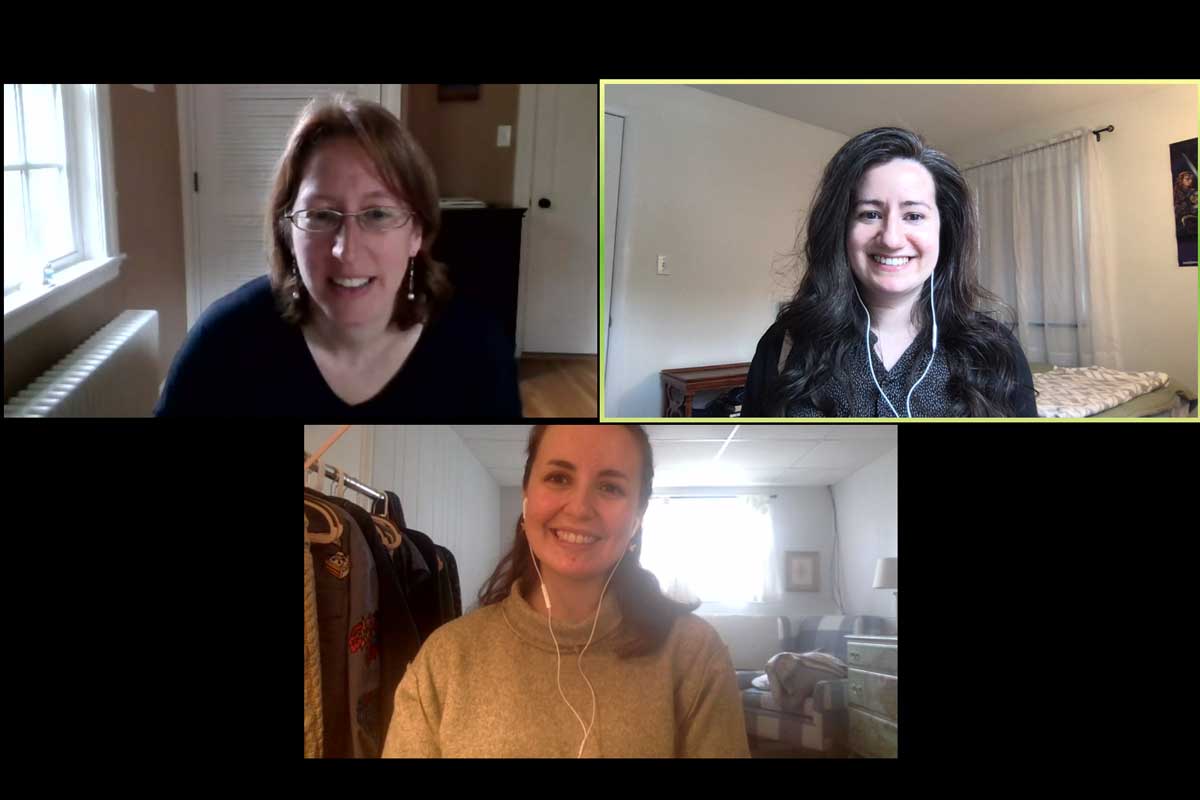 May 26, 2020
May 26, 2020
Nora Pearce, a Wellesley College student in the class of 2022, reflects on her internship with Jennifer Grossman, Ph.D., during the 2019-2020 academic year.
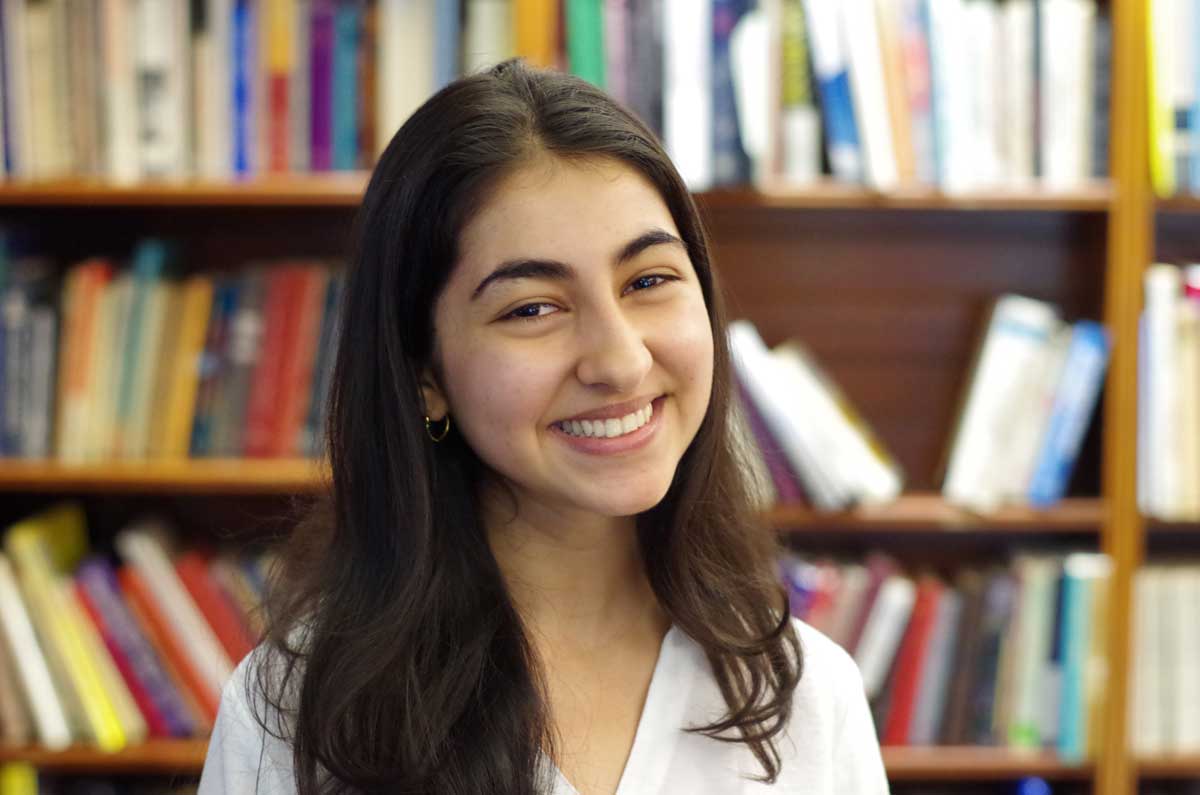 May 19, 2020
May 19, 2020
I never knew that I would have the opportunity to do social science research as an undergraduate until I got to Wellesley College. Towards the end of my first year, with my academic interests starting to gravitate toward Sociology and South Asia Studies, I knew I wanted to connect the concepts I was learning in the classroom to action-oriented research that produced tangible results for ...
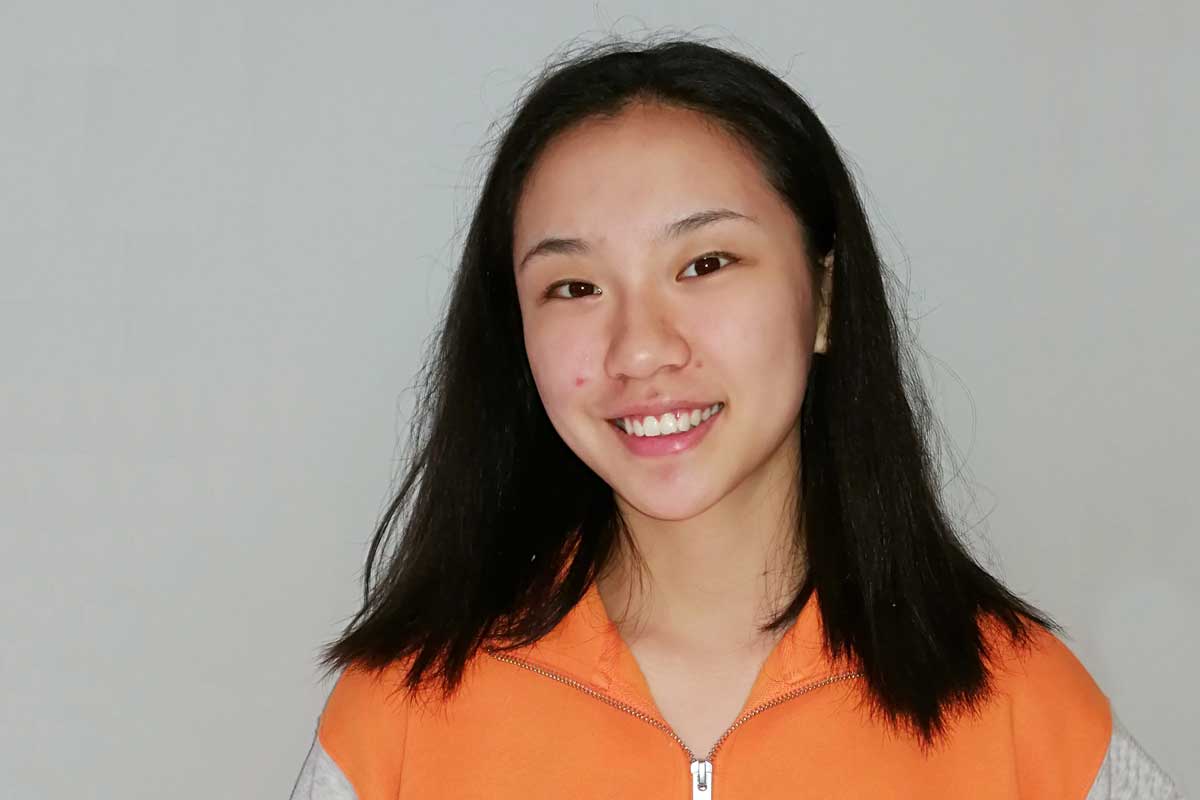 May 14, 2020
May 14, 2020
Undergraduate student research assistant Katie Du reflects on her work with our Youth, Media & Wellbeing Research Lab, and her experience as an international student at Wellesley during a pandemic.
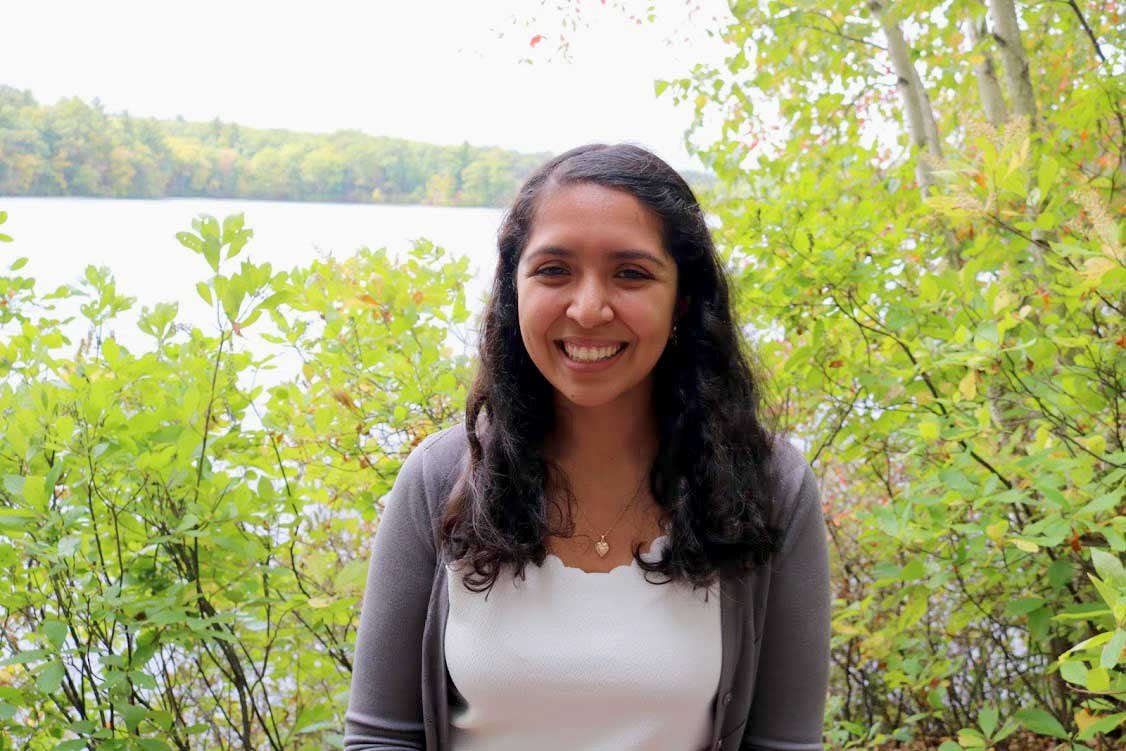 May 6, 2020
May 6, 2020
It is the spring of 2020, and my senior year at Wellesley College is not at all what I imagined it would be like. Before concerns about COVID-19 led schools around the country to close their doors, I was student teaching at a nearby ...
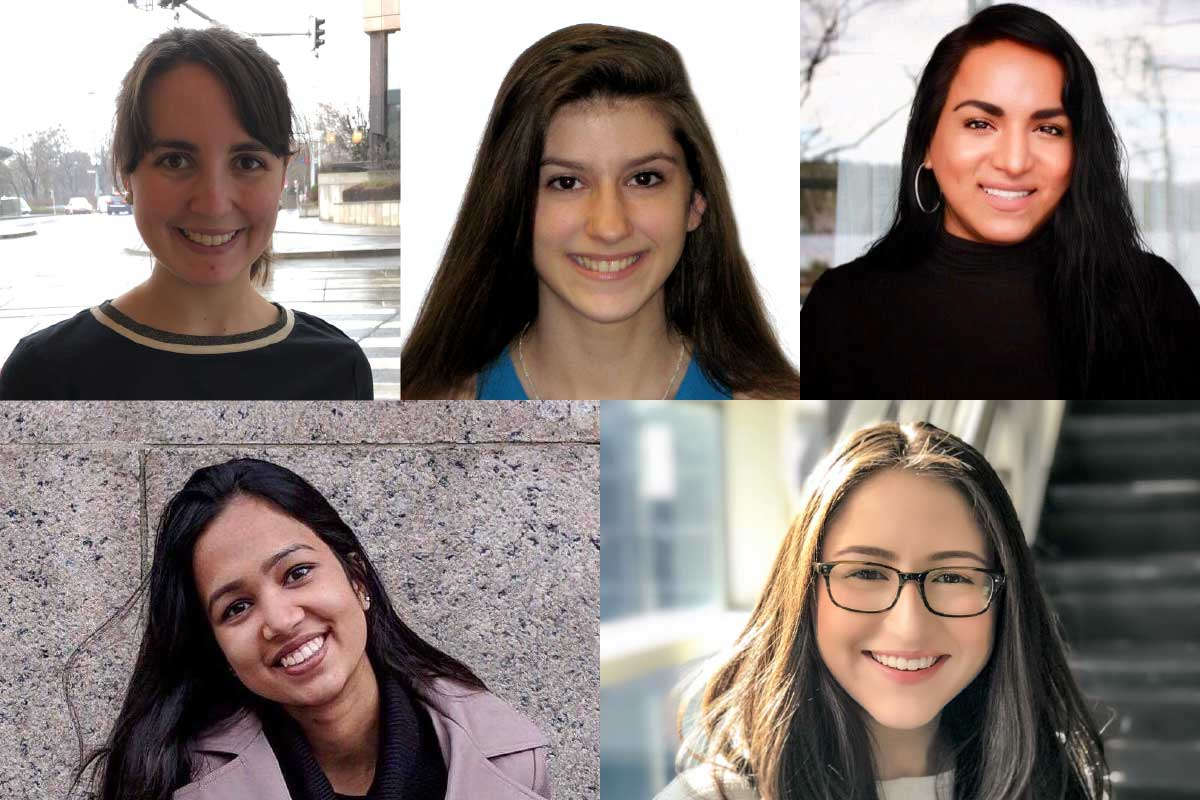 September 20, 2019
September 20, 2019
Throughout the 2019-2020 academic year, five Wellesley College students will gain hands-on social science research experience and mentorship from a WCW research scientist through the Class of 1967 Internship Program.
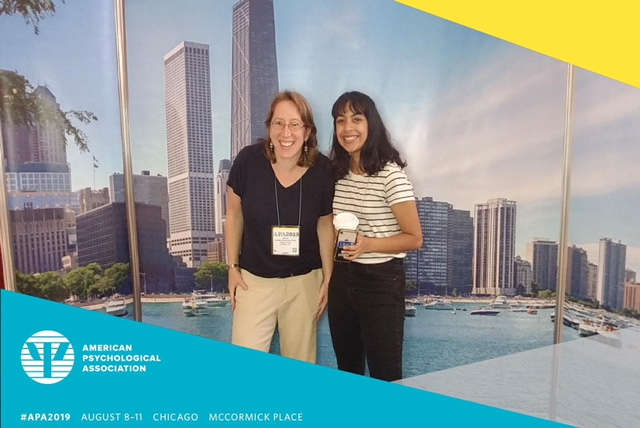
My name is Anmol Nagar and I’m a junior at Wellesley College, originally from the California Bay Area. Over the past year I’ve done research at the Wellesley Centers for Women with Jennifer Grossman, Ph.D., through The Class of 1967 Internship Program. Our ...
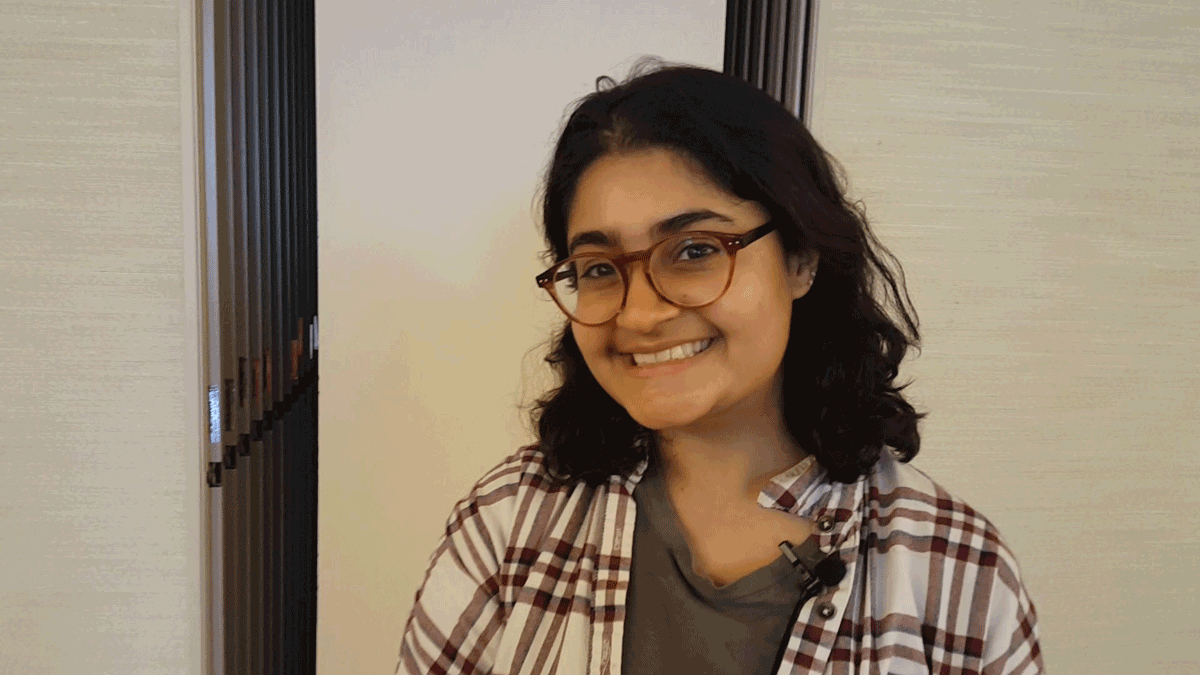 March 1, 2019
March 1, 2019
Three Wellesley students share what they enjoy about working at WCW.
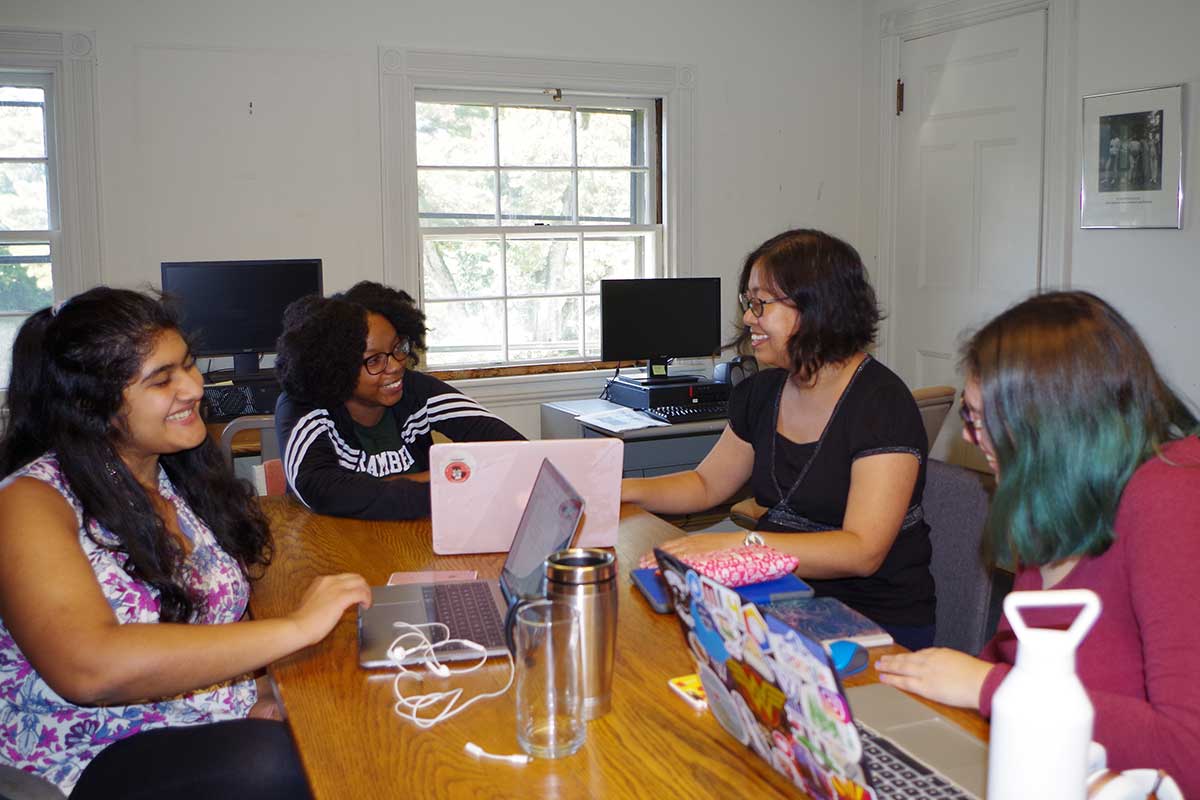 October 17, 2018
October 17, 2018
NIH awarded WCW $450,000 over three years to study social media use of early adolescents while providing Wellesley College students with hands-on research opportunities.
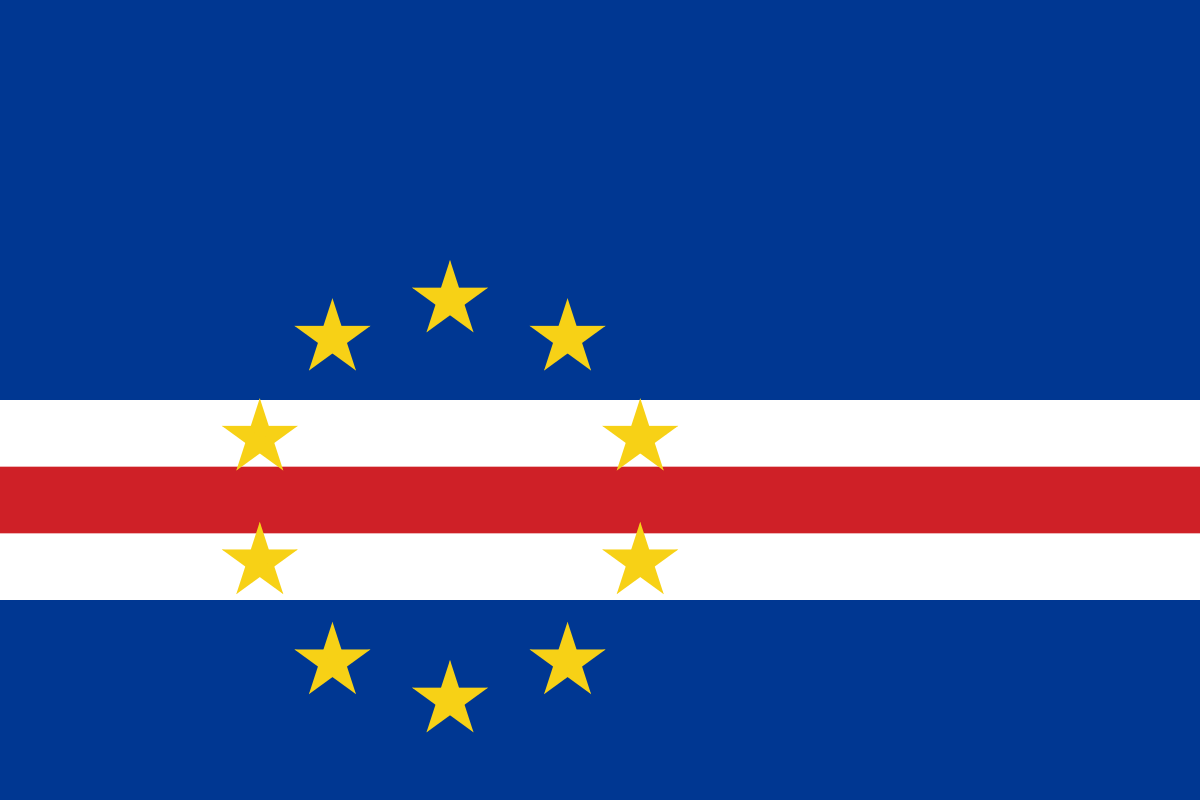 July 12, 2018
July 12, 2018
This article was originally posted by Natália Marques on her Medium blog on June 4, 2018. I landed in Cape Verde on June 17th. I’ve been here for a while already, but as someone who has just spent the last four months ...
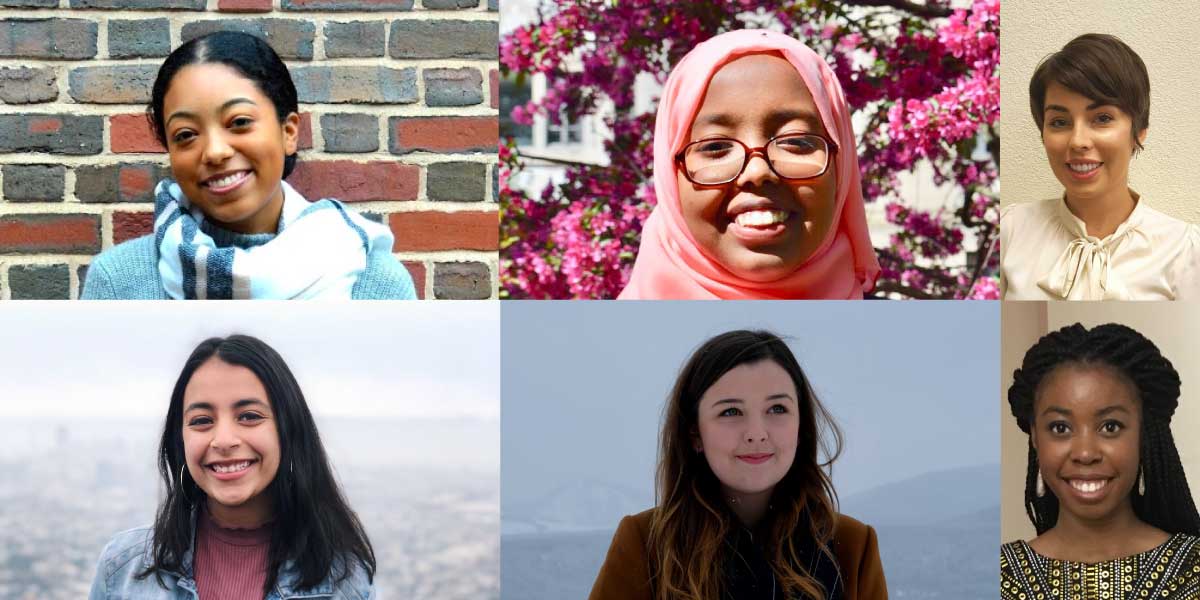 May 23, 2018
May 23, 2018
Six Wellesley College students have been accepted to a hands-on social science research internship program at the Wellesley Centers for Women during the 2018-2019 academic year.
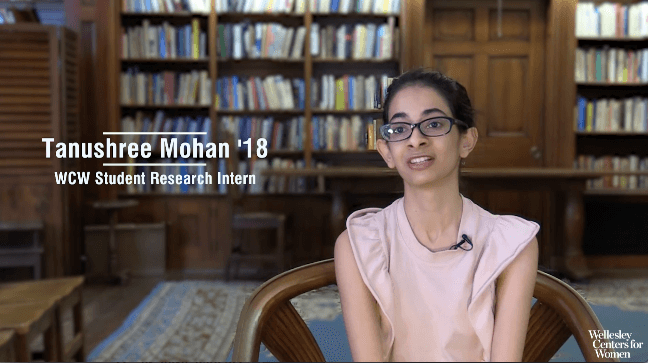 May 16, 2018
May 16, 2018
For Tanushree Mohan '18, getting involved with WCW during her four years at Wellesley College gave her tremendous research opportunities.
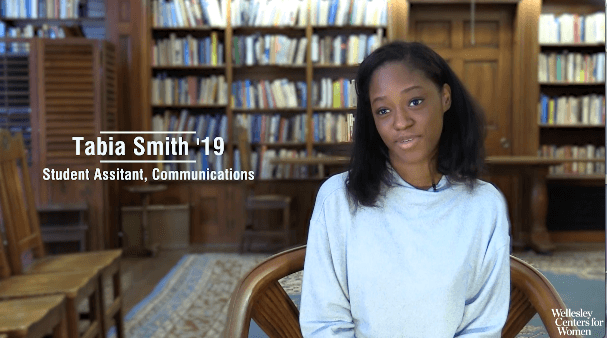 May 14, 2018
May 14, 2018
For Wellesley College student Tabia Smith '19, working in communications at WCW is a way to explore her passions for social justice while developing technical skills, like video production and social media management.
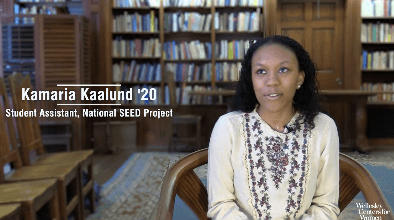 May 9, 2018
May 9, 2018
What is it like to work at the Wellesley Centers for Women? You're surrounded by activists, social justice workers, and researchers, says Kamaria Kaalund '20.
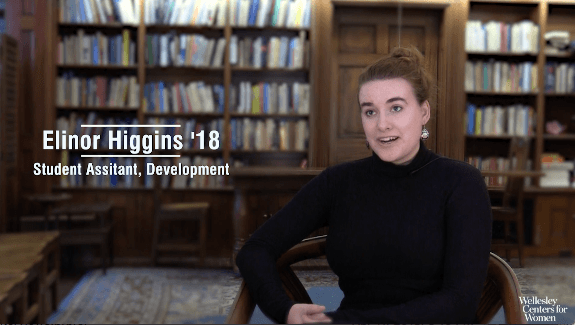 May 7, 2018
May 7, 2018
Elinor Higgins '18 has been working at the Wellesley Centers for Women since her first year at Wellesley College. While at WCW, she says she had access to great mentors that created a very supportive environment throughout her undergraduate career.
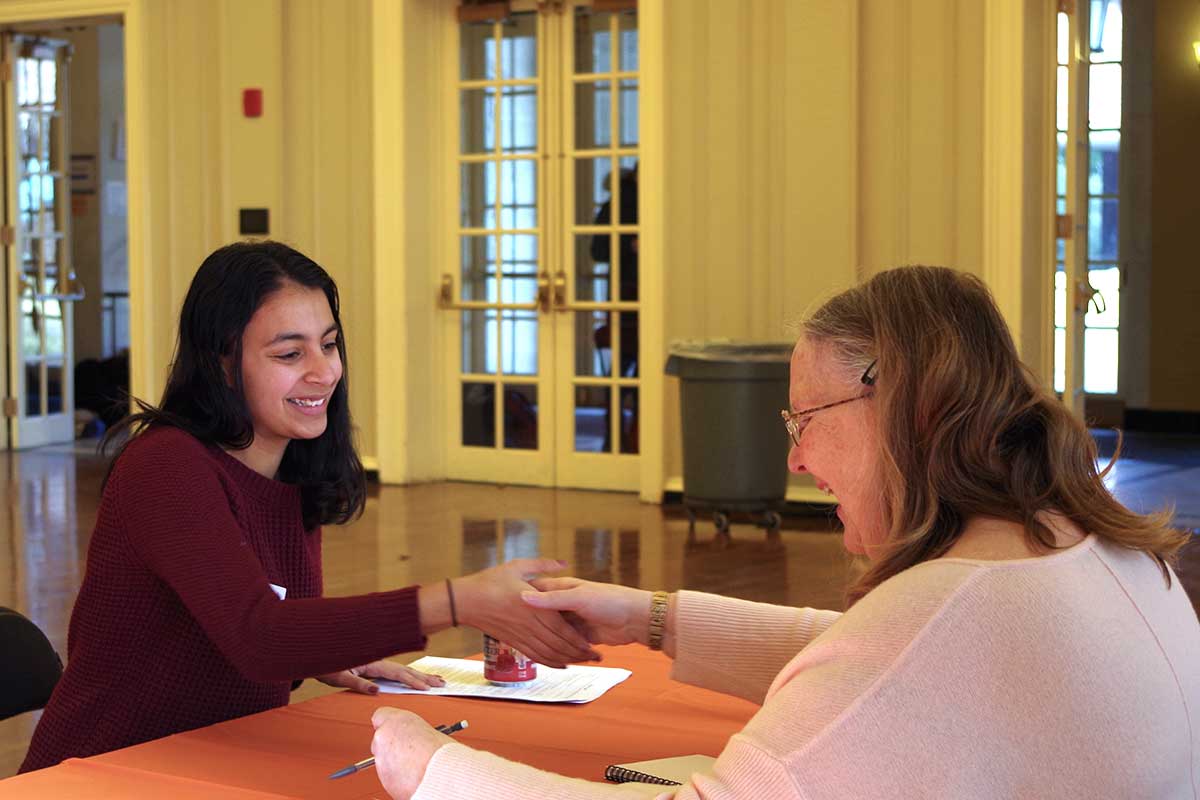 February 5, 2018
February 5, 2018
The Wellesley Centers for Women (WCW) is now accepting applications from Wellesley College students for five paid research internships/fellowships -- one during summer 2018 and four during the 2018-2019 academic year, through The Class of 1967 Internship Program. Over 100 students ...
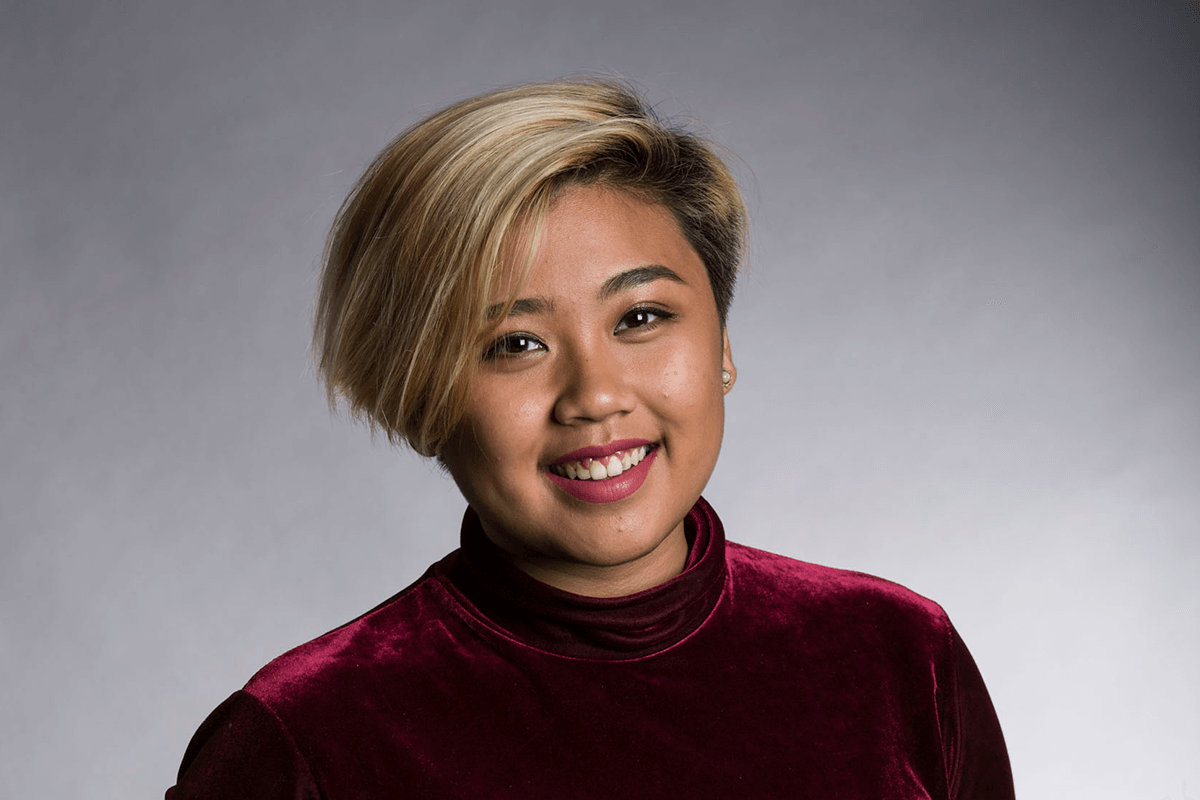 January 23, 2018
January 23, 2018
By the end of my first year at Wellesley College, I knew that I wanted to explore the world of research. I had taken the first of many gender studies courses to come, and left class with a head full of questions that I not only wanted answers to, but wanted to take a stake at answering. A stroke of luck brought me to an event for students to meet with research scientists at the Wellesley ...
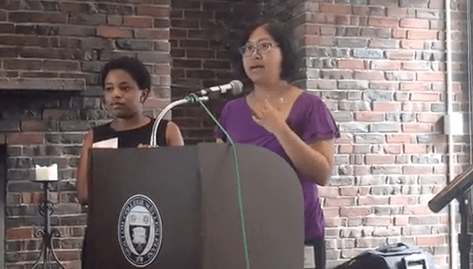 June 1, 2017
June 1, 2017
The Wellesley Centers for Women and the Wellesley College Class of 1967 joined together to celebrate 25 years of partnership.
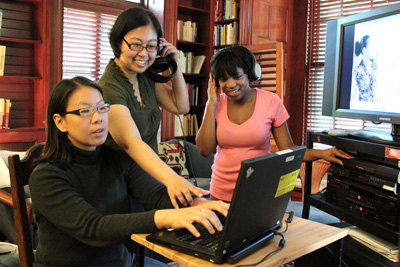 January 17, 2013
January 17, 2013
Happy National Mentoring Month! Since 2002, each January has been a time to give mentoring a boost nationwide through the recruitment of individuals and organizations. The documentary, It’s Our Time: The Empathy Gap for Girls of Color, by Wellesley Centers for Women Research Scientist...
 December 8, 2006
December 8, 2006
Each year, the Wellesley Centers for Women offers five to six paid internships to Wellesley College students through the Class of 1967 Internship Program. Throughout the academic year, students who participate in the program: Gain hands-on social science research ...
More information about the major programs of Wellesley Centers for Woman can be found at the following web sites or main pages:
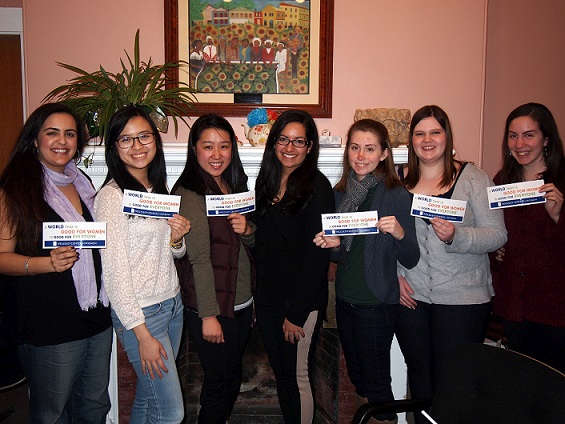
The Wellesley Centers for Women (WCW) Student Ambassadors are a team of Wellesley College students dedicated to the purpose of building bridges between the Wellesley Centers for Women and the Wellesley College student body.
WCW Student Ambassadors will promote WCW at Wellesley College, gather information about student knowledge of and attitudes about WCW, mobilize and organize student participation in WCW public events, serve as a student focus group for the WCW Executive Director, assist with internal research about WCW, and contribute to the utilization of social media vis-à-vis WCW. Ambassadors will be expected to attend monthly meetings each semester.
"I decided to join the WCW Student Ambassadors my first year because I happened upon the WCW website and was incredibly interested in WCW's commitment to research and action. My favorite part about these two years has been getting to work closely with the WCW staff who I would not otherwise have gotten the chance to personally meet. I particularly enjoyed the event we held this semester (Spring 2014), about the power of data for social change and hearing how each senior research scientist made tangible impacts in their work.
It is so important that WCW and Student Ambassadors bridge the connection between the Centers and Wellesley students. So many students are interested in social change and activism, but now many have heard about the Centers to know how to best bring about that change. I can personally say that witn my involvement as an Ambassador and research intern with Dr. Linda Charmaraman this year and next year, I am truly delving into how research can directly influcence other people and in what form this change could take.
Wellesley students should join the Student Ambassadors to get to know other like-minded and passionate students and to put on WCW, research-related events for the student body!"
- Bernice Chan, Class of 2016
Ethnic Studies Individual Major
"I decided to join the WCW Student Ambassadors because I wanted to be involved with an organization devoted to research by women, for women. I wanted to help advocate for the presence of th is organization to students of the college because I had never heard of it before and it seemed like such an important organization to know about.
I believe that the women-specific research is the most important thing WCW is doing. It is important to conduct this type of research because there are a number of women's issues that require attention and knowledge. It is a duty that we are bound to carry out as a collective gender identity. Women cannot have a voice if they do not have the knowledge to back their needs.
Other Wellesley students should join WCW Student Ambassadors because more awareness is needed of this amazing organization. I believe that all Wellesley students would benefit from being associated with an organization devoted to women and children specific research."
- Danielle Zarbin, Class of 2016
Women and Genders Studies
Click here to read a typed version of Layli's letter>>

P.S. Your generosity is always needed and appreciated. Thank you.
Dear Friends,
Welcome to 2018! We didn’t think we’d make it through last year, but we did. Between nuclear missile tests, terrorist attacks and mass shootings, hurricanes and wildfires, immigration and healthcare concerns, nonstop political intrigue, and even the solar eclipse, there was barely a moment’s rest. Yet, as I reflect back on the year, what stands out to me – what I really remember and continue to think about – is all of the gains for women. Quietly and loudly, it was a year when women really mobilized – together and with others – to move women’s issues forward with great force.
Just think: We started the year with the Women’s March. Who can forget the sea of pink hats on the National Mall in Washington, D.C., and the fact that women all over the world – in 673 different locales, from Antarctica, Argentina, and Australia, to Tanzania, Thailand, and the U.K. – were wearing them? We let the world know that we are a force to be reckoned with. By autumn, we were taking down titans, demanding accountability for sexual harassment, sexual assault, sexist bullying, and other forms of violence against women that had been going on for years in the workplace and beyond. Our voices mattered! Our voices had impact! And, more than anything, it was our coming together that got the job done.
We ended the year with the news that a powerful group of women had come together to make sure that the gains of the year would have longevity, and that the wave we started in 2017 would continue to gain momentum in 2018. I was particularly excited to hear that this new coalition, The Commission on Sexual Harassment and Advancing Equality in the Workplace, or so-called “Hollywood Commission,” will be led by our able friend Anita Hill, once a visiting scholar at the Wellesley Centers for Women. This commission has set a big agenda and is bringing heavy hitters from entertainment, business, law, and even venture capital to the job.
Now, as we stand on the precipice of the new year, we must think deeply about what it means for each of us individually to contribute to this momentum – and how we can bring groups, large or small, that we are already part of into the wider circle of social change and social movement. We must also think deeply about the quieter, less glitzy, but equally important aspects of the work that will ensure that true, sustainable social change follows from the recent explosion of activity.
For example, what are we doing for girls? How are we keeping them safe and also making sure they have the knowledge, confidence, and support to grow up free from the kinds of violence that many of us in older generations have had to endure? And how are we raising our boys, so that they grow up with a different mindset, one that says an emphatic NO to the patriarchal attitudes that have not only normalized, but also tutored, violence against women for so long? We have to think long term and address problems at their root.
Furthermore, how are we going to keep holding our social institutions accountable? From our three branches of government to corporations and businesses, medical institutions, educational institutions, religious institutions, and, especially, the media – we have to keep demanding accountability and change. Are we looking at policy through the microscope, getting rid of outdated policies that don’t serve women and authoring new gender-equal policies where none yet exist? And are we demanding that policy is put into practice? We must utilize the momentum we have started and make this change ecological – that is, implemented in every sector of society for all age groups and all types of people.
At the Wellesley Centers for Women, we are clear about our role: For 44 years now, we have done the kind of gold-standard research that makes it possible for activists, advocates, policymakers, and change-makers to do their work on the foundation of rock solid data and evidence. For example, we have made it possible for Dr. Nan Stein to study peer sexual harassment in middle and high schools – and its relationship to the emergence of teen dating violence and later intimate partner violence – for decades, and to develop innovative programs for its elimination, based on linking social science with the application of Title IX law.
We have made it possible for Dr. Linda Williams, an internationally recognized expert on domestic violence, trafficking, rape, rape prosecution, and college sexual assault, to conduct studies, often funded by the National Institute of Justice, that result in better policies and practices in places like the military, universities, police departments, and courtrooms.
We have made it possible for Dr. Jenny Grossman to study how family communications affect young teens’ understandings about sex and sexual behavior, including risky sexual behavior, and for Dr. Linda Charmaraman to study how teens’ media consumption and social media use relate to some of their exposure to and engagement in sexually risky behaviors.
In short, we are doing the work, and will keep doing the work – the work that is so badly needed in this moment, and will continue to be needed into the foreseeable future. Gold-standard research is not the kind of work that can be done on a moment’s notice, within the fleeting span of a news cycle, or just in time for tomorrow’s headlines; rather, it is work that must be imagined, planned, and carefully executed well before we know exactly when or where it will be needed. This is why we rely on the foresight and deep expertise of our feminist and womanist researchers and on supporters like you who always keep the flame lit with your passion for the issues and your contributions to our important work. Together, we have contributed to this big wave of change that emerged in 2017 and will continue to amass power in 2018.
I can’t think of a better reason to say “Happy New Year!!” Can you??
With joy and gratitude,
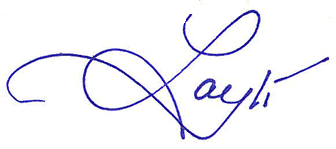
Layli Maparyan
Katherine Stone Kaufmann ’67 Executive Director
P.S. Your generosity is always needed and appreciated. Thank you.